The 57 best one-hit wonders of all time
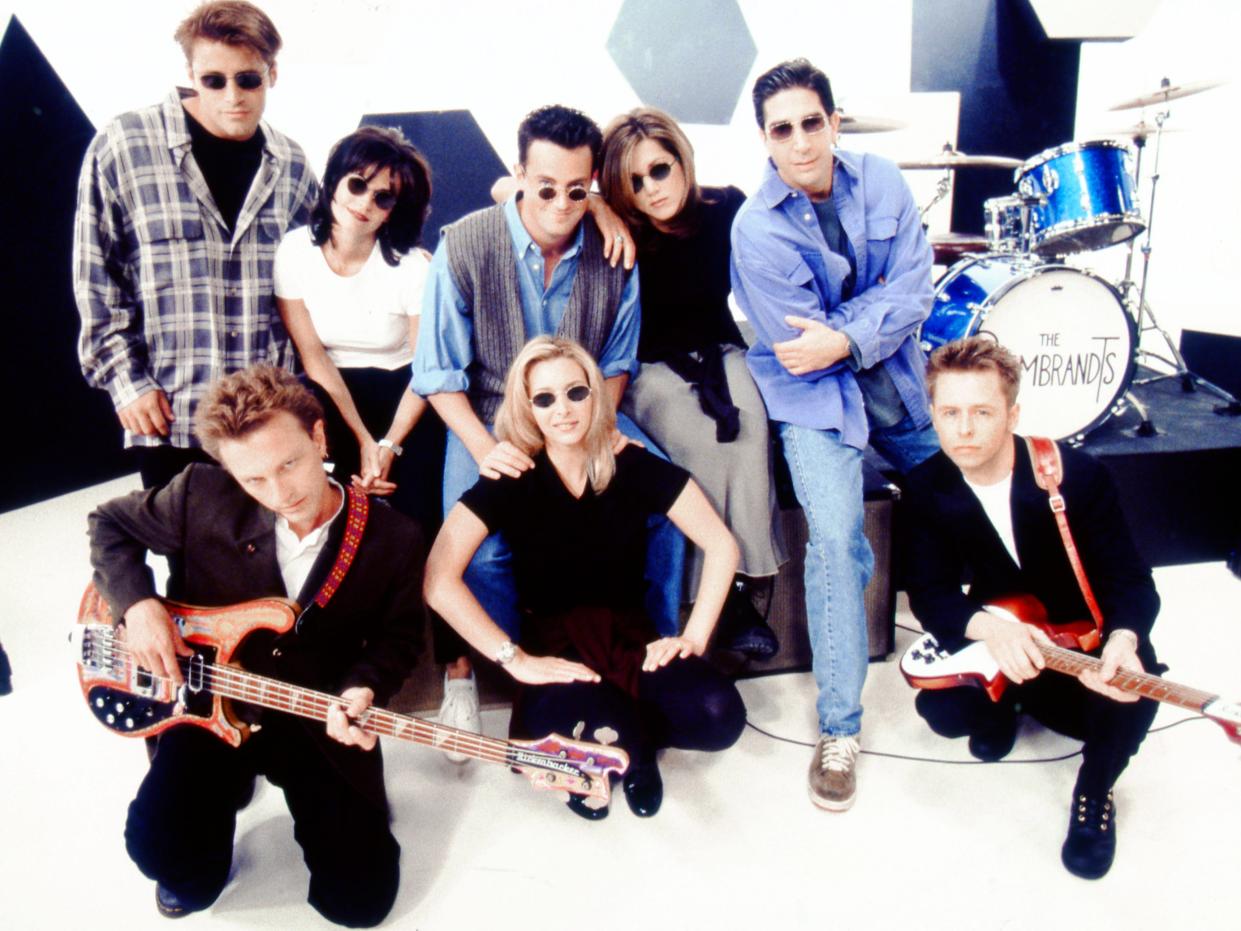
A one-hit wonder is a singer or group that has only experienced success with one hit song.
Often, people will only remember the name of the song and not even the singer or group behind it.
We've rounded up some of the best one-hit wonders of the past 60 years.
Even though an artist may be a one-hit wonder, they still might have contributed one of the most famous songs of all time.
Take Tommy Tutone, for example. You might not know the band, but you can definitely recite the number "867-5309" — Jenny's phone number.
Although the members of Tommy Tutone have gone their separate ways, they still make money off the song. Lead singer Tommy Heath told the Houston Chronicle in 2002 that his former bandmate Jim Keller "makes plenty of money off it. I don't see how he could complain." He continued, "I've done some solo shows without the song, but it'd be tough not to do it now. ... It's fun to sing, but only once a night."
In the last six decades, many one-hit wonders have blessed our ears, and we've rounded up the top 57 in the US. While some of these singers or bands may have found moderate success across the pond, they practically disappeared stateside.
Take a trip down memory lane to revisit these classic jams.
"Rockin Robin" by Bobby Day (1958)
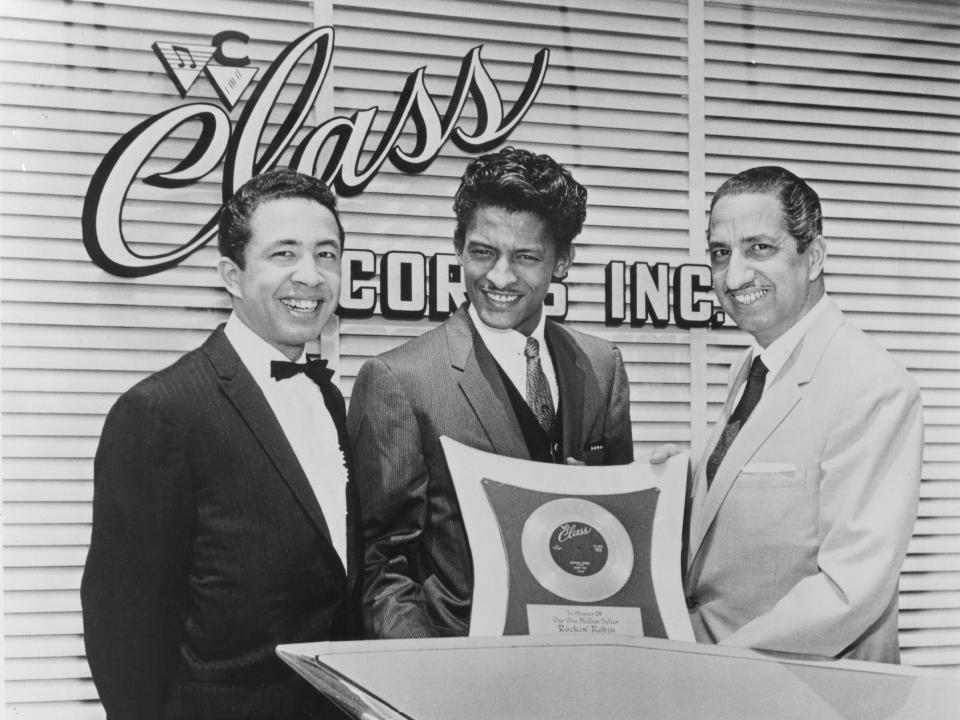
You might know "Rockin' Robin" best as a kid's song with an accompanying hand game, or as the 1972 version sung by the Jackson 5.
However, Bobby Day recorded the original version in 1958, and it was his biggest (and only) hit.
Day stopped recording music as a solo artist after 1960 when he began concentrating on songwriting.
"Hey! Baby" by Bruce Channel (1961)
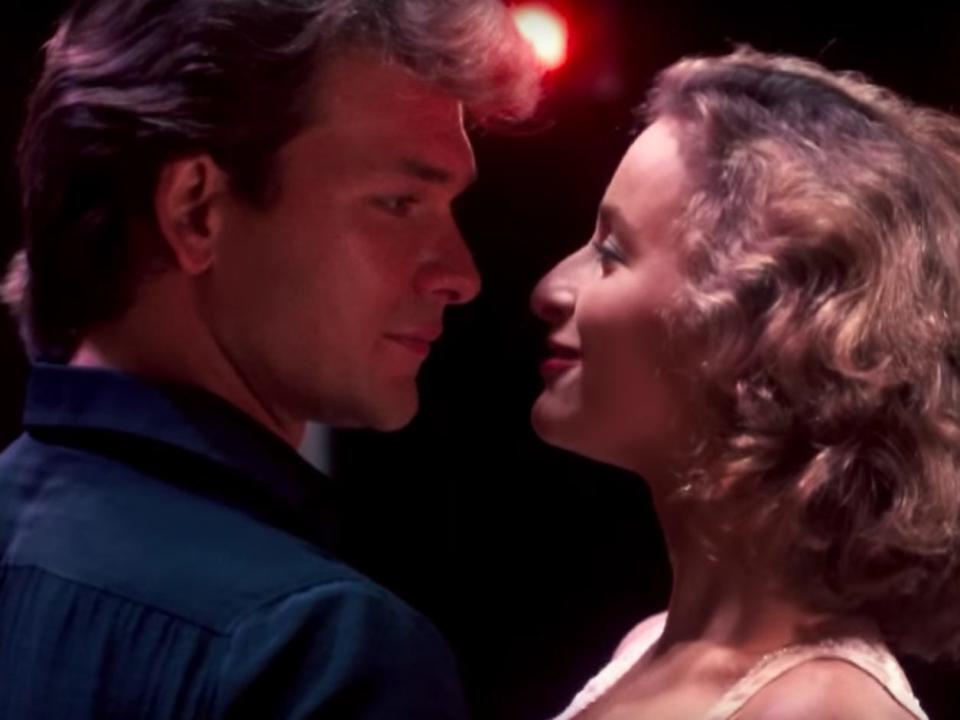
The DJ Ötzi remix of "Hey! Baby" is the version you've most likely heard at sporting events and such — but the original is much more relaxed, with a prominent harmonica. Sung by Bruce Channel, it topped the Billboard Hot 100 in 1962.
Channel, while touring Europe, was accompanied by a little-known band (at the time) named the Beatles.
There's a popular urban legend that suggests that the harmonica part in "Love Me Do," the Beatles's first single, was inspired by Channel and this song, but Lennon had already been playing the instrument for a few years.
The song experienced a resurgence in popularity after being used during a scene in the 1987 classic film "Dirty Dancing."
"Wipe Out" by The Surfaris (1963)
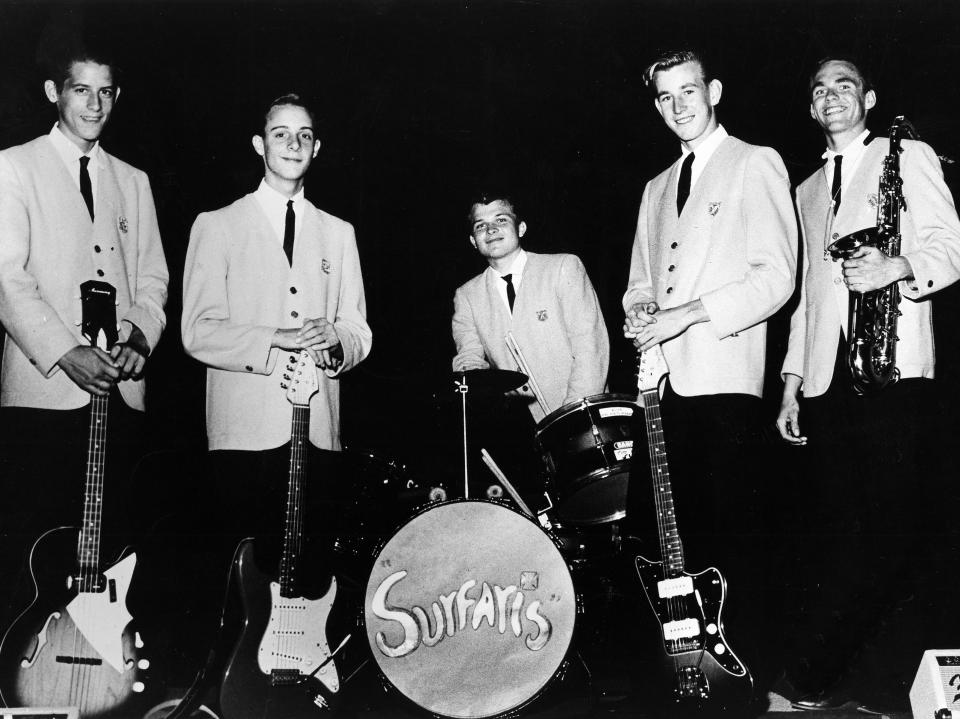
You might not know the song by name, but chances are you've heard "Wipe Out" — either The Surfaris version or a cover.
It's been used in over 20 movies and TV shows. In fact, it pops up at least once a decade, and in 2019, the band was inducted into the Musicians Hall of Fame for the hit song.
The song spent four months on the Billboard charts, but never reached the top spot.
"Spirit in the Sky" by Norman Greenbaum (1969)
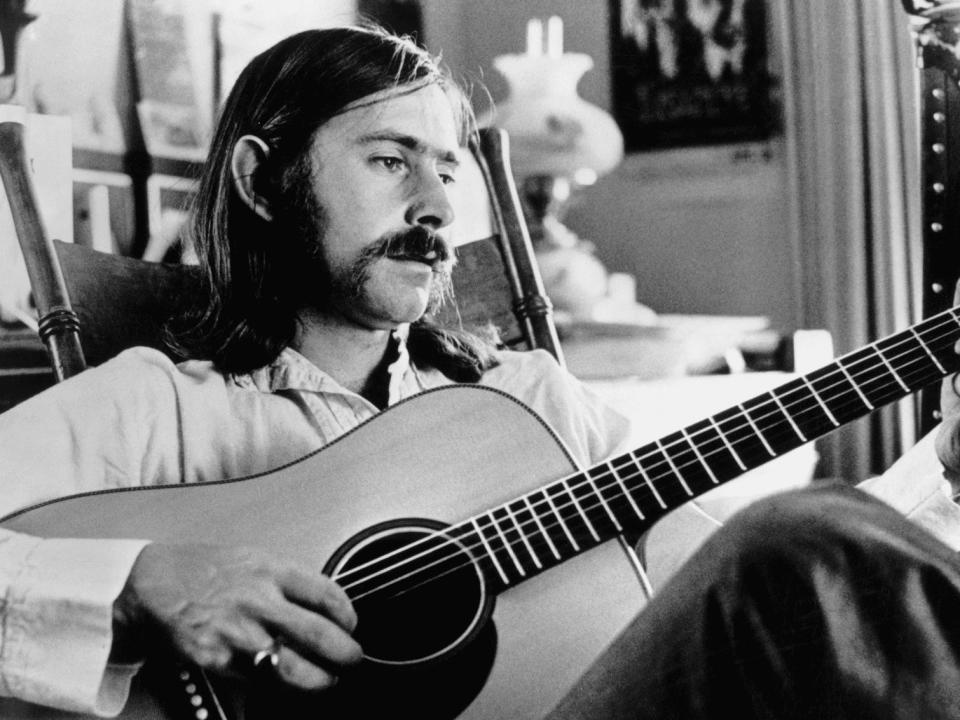
"Spirit in the Sky" is Norman Greenbaum's only hit as a solo artist, though he had moderate success with his bands Dr. West's Medicine Show and Junk Band, and Bruno Wolf with the Jim Kweskin Jug Band.
"Spirit in the Sky" topped the charts in multiple countries and reached No. 3 on the Billboard Hot 100. It was ranked No. 341 on Rolling Stone's 500 Greatest Songs of All Time.
"Sugar, Sugar" by The Archies (1969)
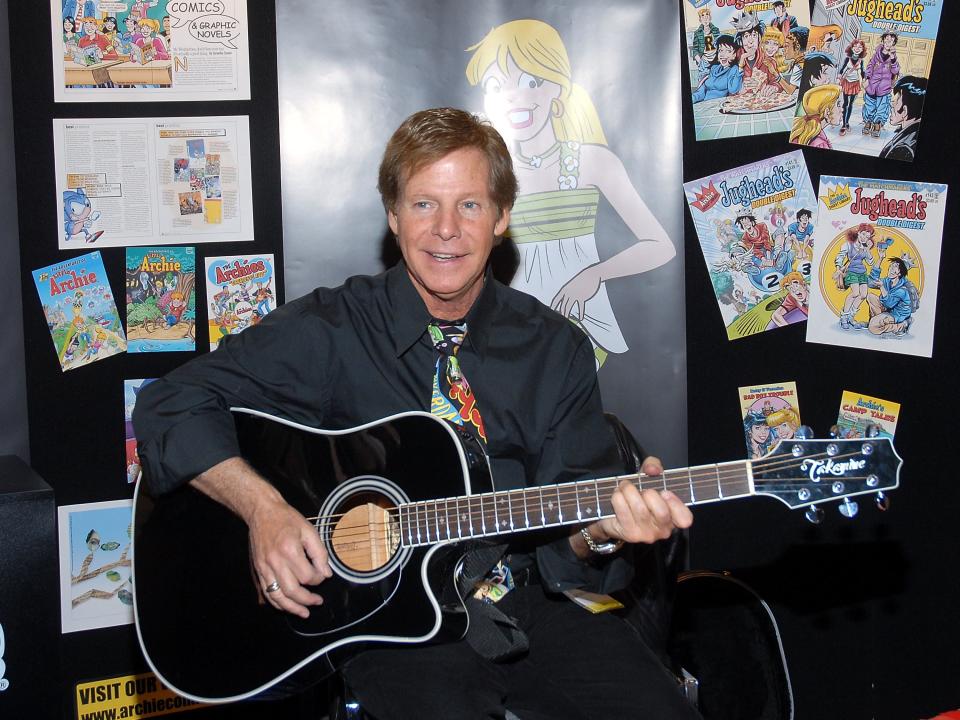
The only virtual band on this list, The Archies was made up of the fictional characters in the "Archie" universe: Archie, Jughead, Betty, Veronica, and Reggie. "Sugar, Sugar" was a No. 1 song in 1969, and became The Archies' signature song.
Their only other top 10 song, "Jingle Jangle," has not stood the test of time as well as "Sugar, Sugar," and is best known for being a recreational drug in "Riverdale," a dark modern reboot of "Archie."
"O-o-h Child" by Five Stairsteps (1970)
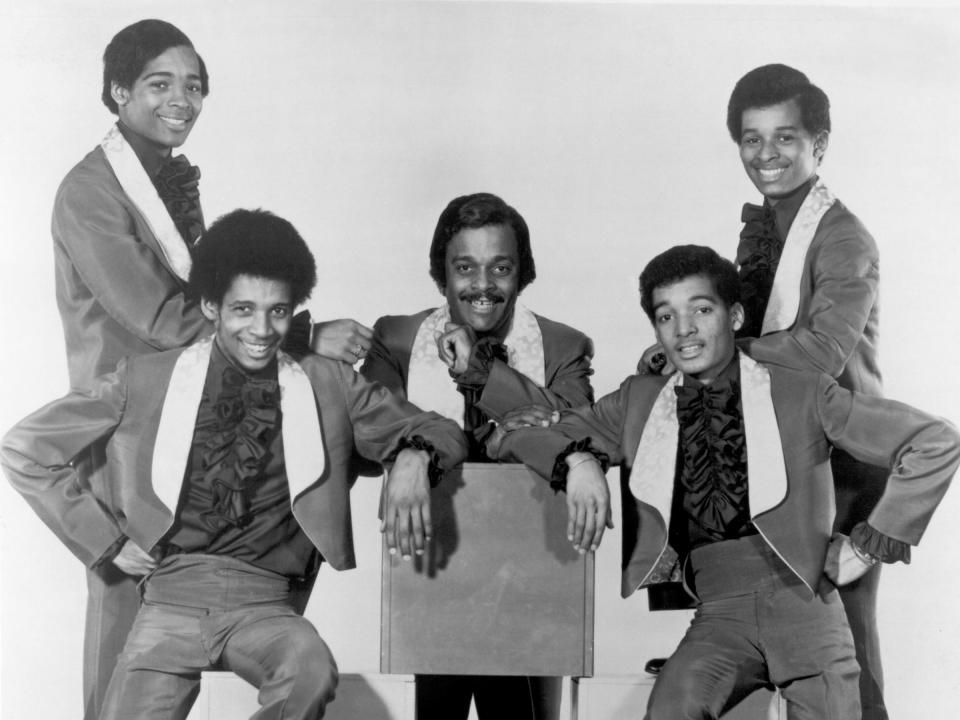
"O-o-h Child" was ranked at No. 402 on Rolling Stone's list of the 500 Greatest Songs of All Time, so it might come as a disappointment that Five Stairsteps never had another mainstream success.
They had multiple Top 40 hits on the R&B chart, but only peaked at number eight with "O-o-h Child" on the Billboard Hot 100. The song has been used in many different TV shows and movies, including "How I Met Your Mother," "Scandal," and "Guardians of the Galaxy."
"Mr. Big Stuff" by Jean Knight (1971)
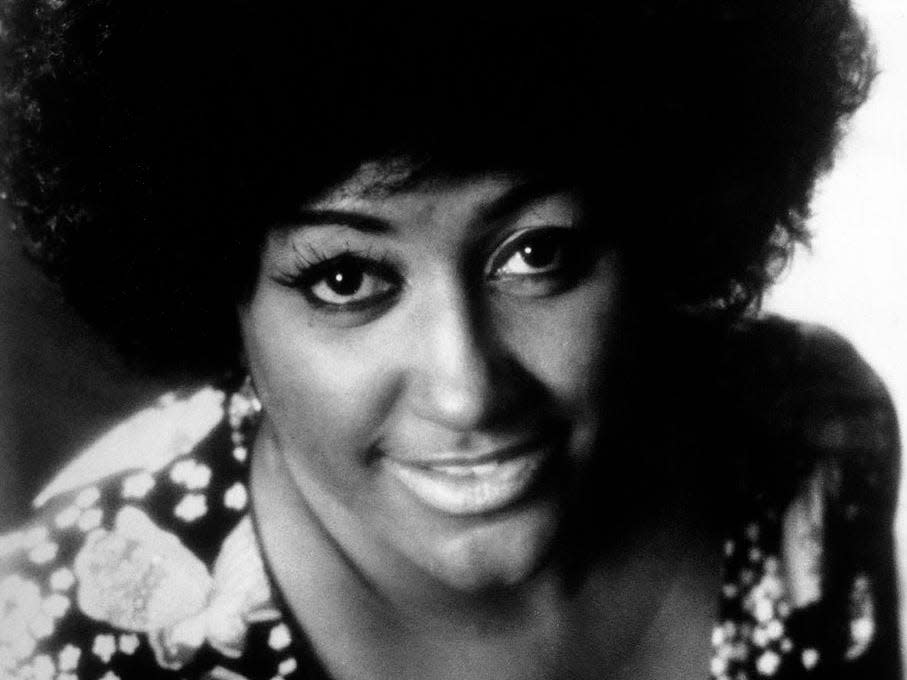
"Mr. Big Stuff" was a huge song during the '70s. It spent five weeks at number one on the Soul Singles chart and hit No. 2 on the Billboard Hot 100.
However, Knight's career plateaued after "Mr. Big Stuff," and she was never able to replicate that level of success. But the song lives on: it was the top Soul Single of 1971, has been covered by many artists, and is frequently sampled in other songs.
"Brandy (You're a Fine Girl)" by Looking Glass (1972)
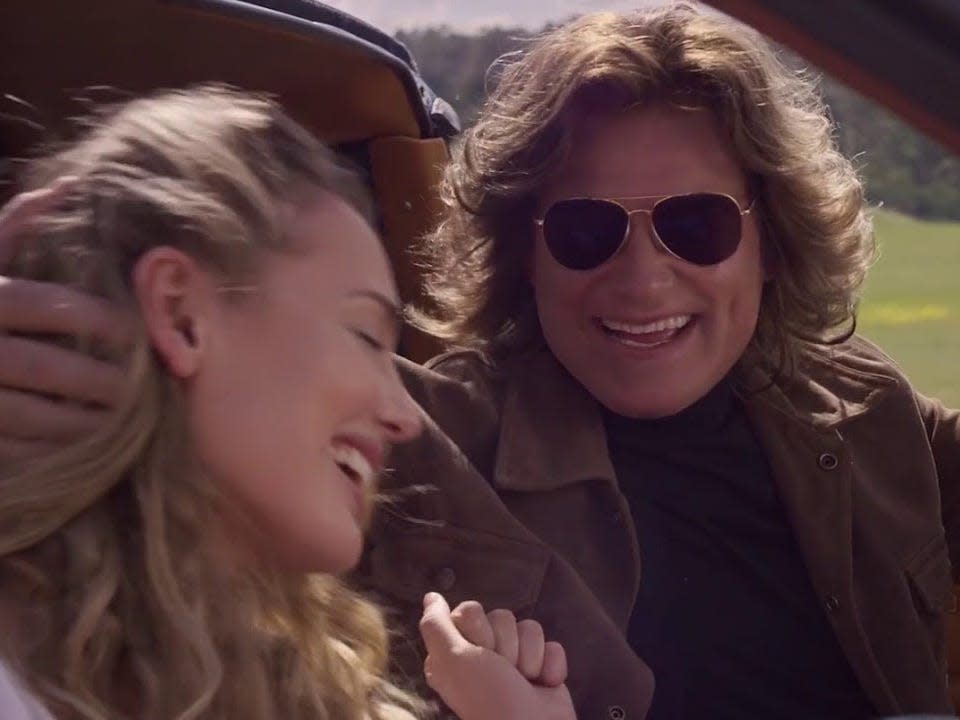
Looking Glass only released three singles during their time as a band: "Brandy," "Golden Rainbow," and "Jimmy Loves Mary-Anne." "Brandy" was their only hit, and it topped the Billboard Hot 100.
The song recently played a big part in 2017's "Guardians of the Galaxy Vol. 2," where Ego (played by Kurt Russell) called it "one of Earth's greatest musical compositions, perhaps the greatest."
"Dancing in the Moonlight" by King Harvest (1972)
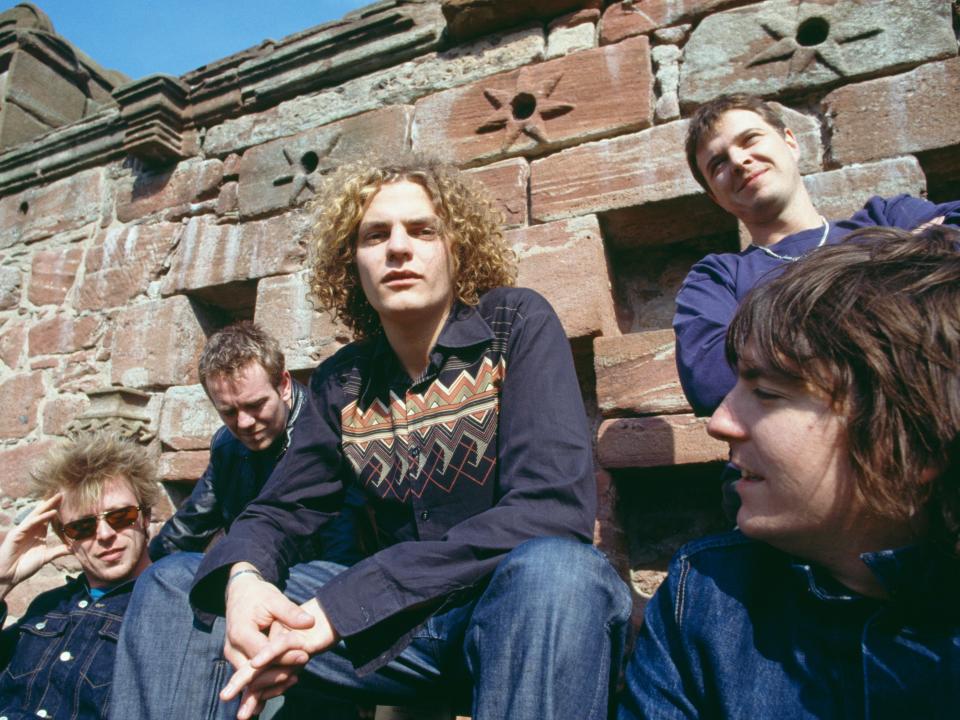
King Harvest's one and only hit single made it to No. 13 on the Billboard Hot 100. Though the group has gone through various ups and downs (like break-ups and a fluctuating roster), they released another single in 2016.
Toploader, a British alternative band, released a cover of "Dancing in the Moonlight" in 2000 which was certified Platinum in the UK.
"Magic" by Pilot (1974)
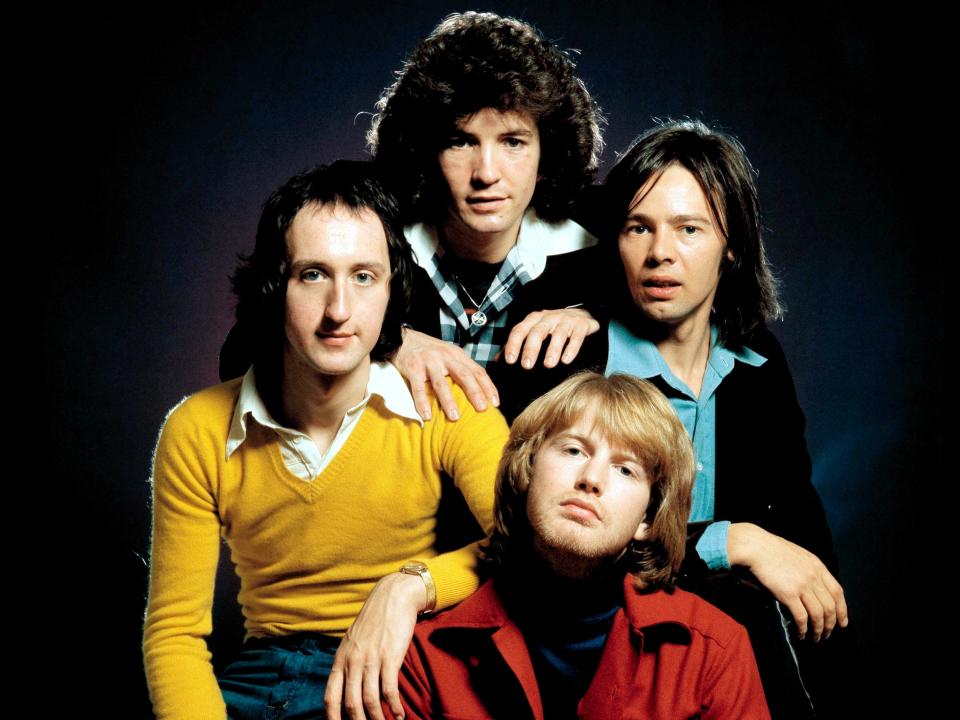
"Magic" was recorded by Scottish band Pilot in 1974, and was their first hit single. It peaked at No. 5 on the Billboard Hot 100, and was number 31 on the end-of-year Billboard Hot 100.
The song remains their biggest (and only) hit in the US. Thirty-five years after its release, former Disney Channel star Selena Gomez covered the song for the soundtrack of her show "Wizards of Waverly Place."
"Got to be Real" by Cheryl Lynn (1978)
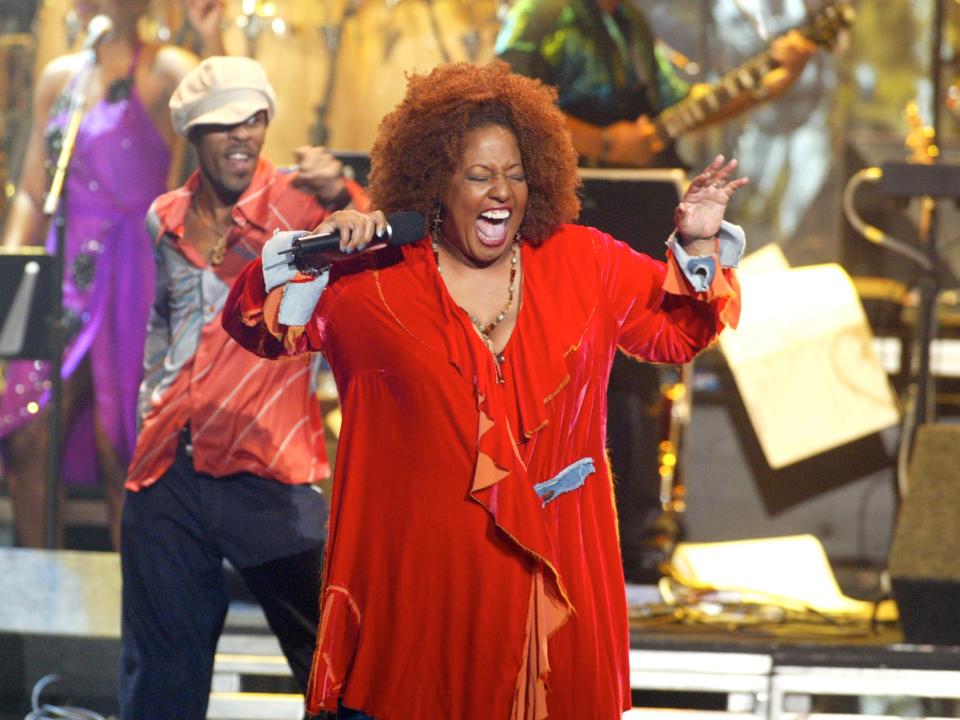
"Got to Be Real" has been called a defining moment in disco history, though Cheryl Lynn isn't a huge name in mainstream music. "Got to Be Real" was her debut single and topped the US R&B charts, though it didn't even crack the top 10 of the Billboard Hot 100 — neither did any of her other singles.
"Got to Be Real" was reintroduced to a younger crowd when Mary J. Blige and Will Smith covered the song for the 2004 animated film "Shark Tale."
"My Sharona" by the Knack (1979)
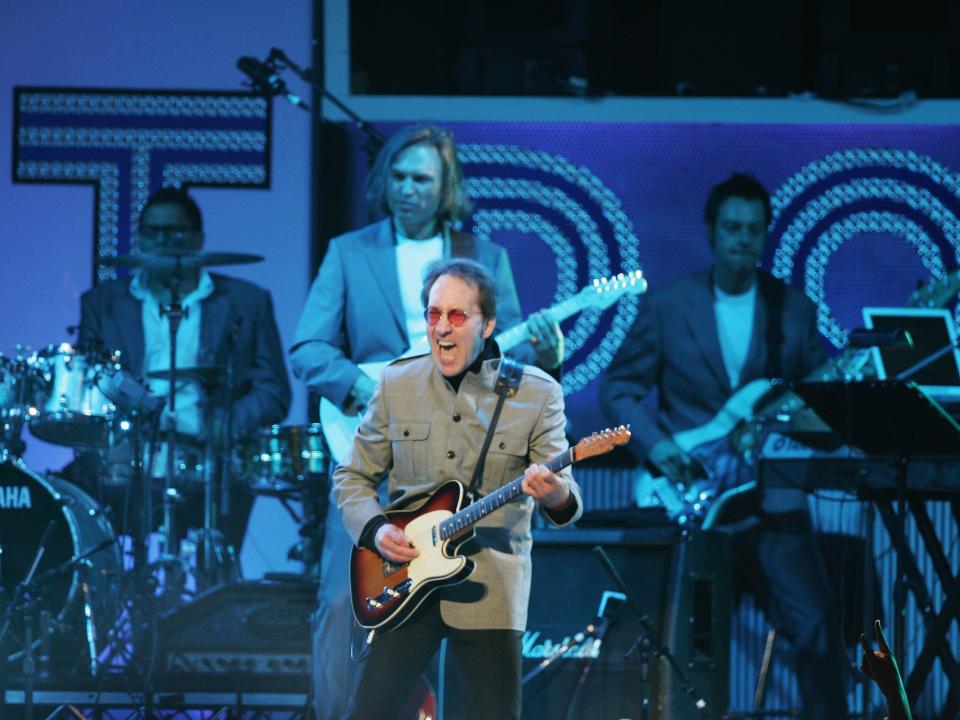
For The Knack, "My Sharona" was as good as it ever got. Their debut single rocketed to the top of the charts, and became Capitol Records' fastest-ever song to achieve Gold status since "I Want to Hold Your Hand" by the Beatles, according to Rolling Stone.
The band failed to have another single break the top 10.
"Rapper's Delight" by Sugarhill Gang (1979)
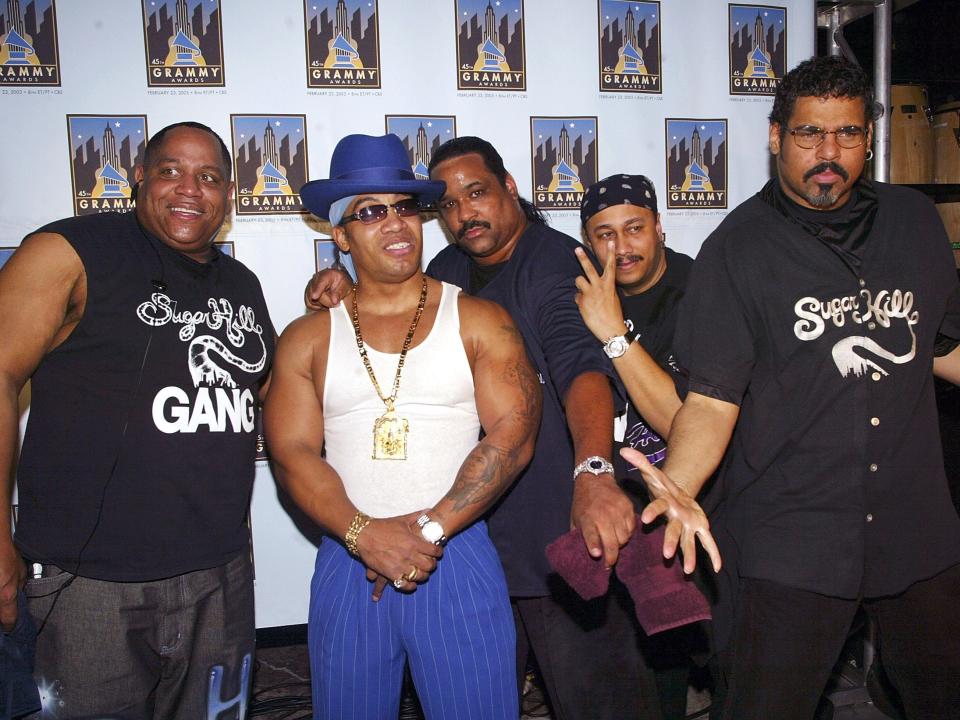
"Rapper's Delight" is widely acknowledged as the first hit rap song. It was included in the Library of Congress' National Recording Registry for being "culturally, historically, or aesthetically significant."
Even though they're credited for bringing rap into the mainstream, the Sugarhill Gang didn't enjoy much mainstream success. They failed to crack the Top 40 after "Rapper's Delight."
"867-5309/Jenny" by Tommy Tutone (1981)
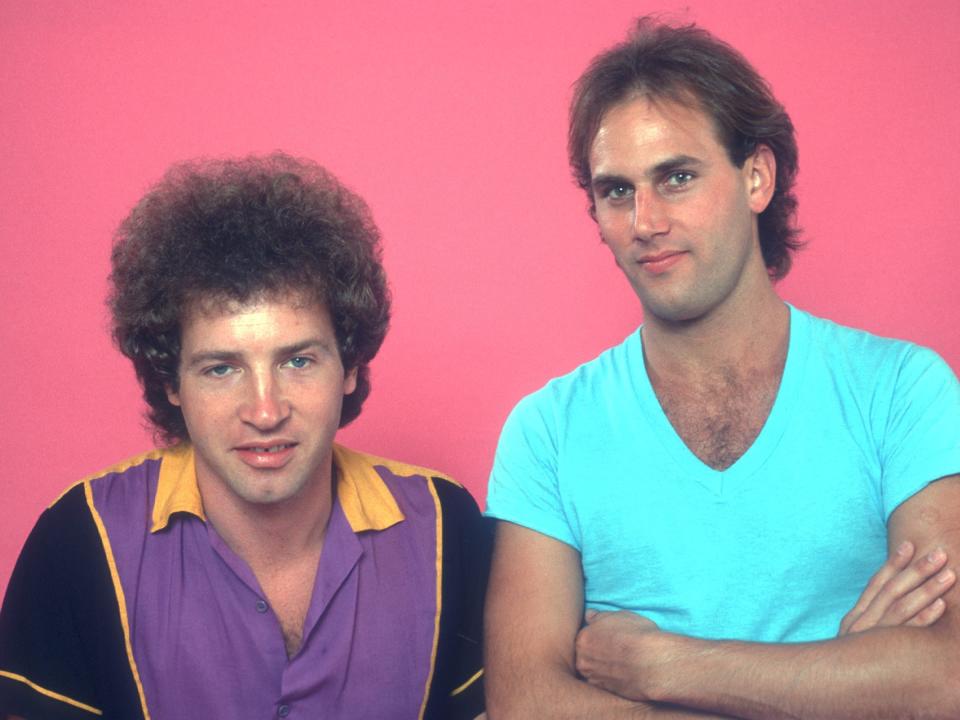
867-5309 is one of the most famous phone numbers of all time. How did Tommy Tutone pick the exact catchiest combination of numbers? It's unclear, but whatever he did, it worked.
However, "867-5309/Jenny" was Tommy Tutone's only song to ever break the top 25. The titular Jenny is the subject of many urban legends: some believe she was a sex worker, while even members of the band disagree on whether she was real.
"Tainted Love" by Soft Cell (1982)
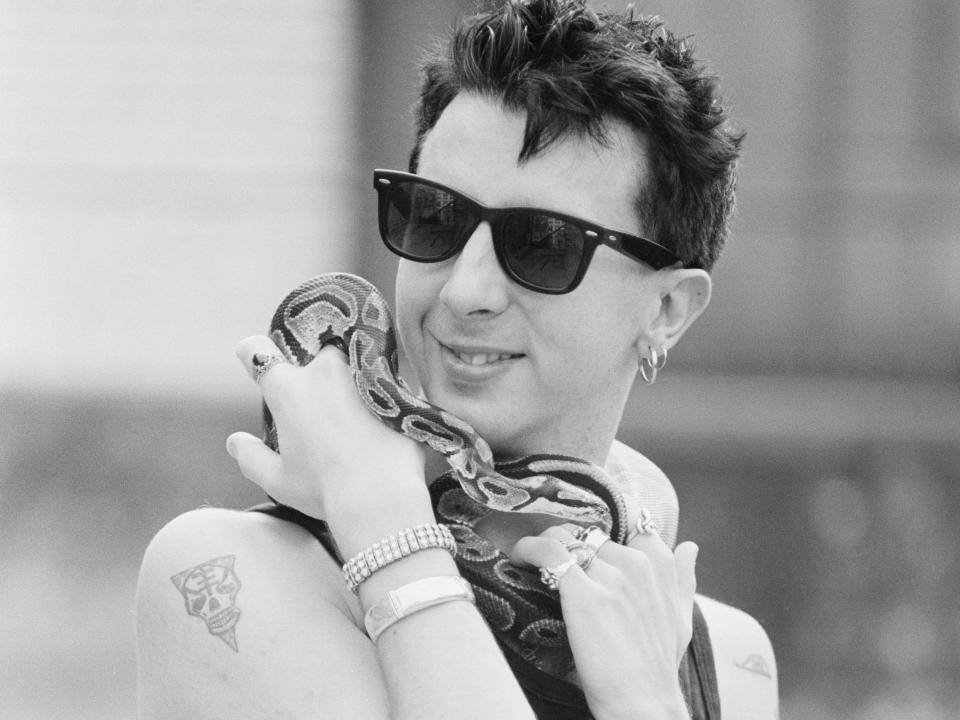
The synths in Soft Cell's cover of 1964 Gloria Jones song "Tainted Love" are unmistakable, as they don't sound like anything else out there.
"Tainted Love" was Soft Cell's first and only big hit in the US, where it reached No. 8 on the Billboard Hot 100 and No. 4 on the US Dance Charts.
"Come On Eileen" by Dexys Midnight Runners (1982)
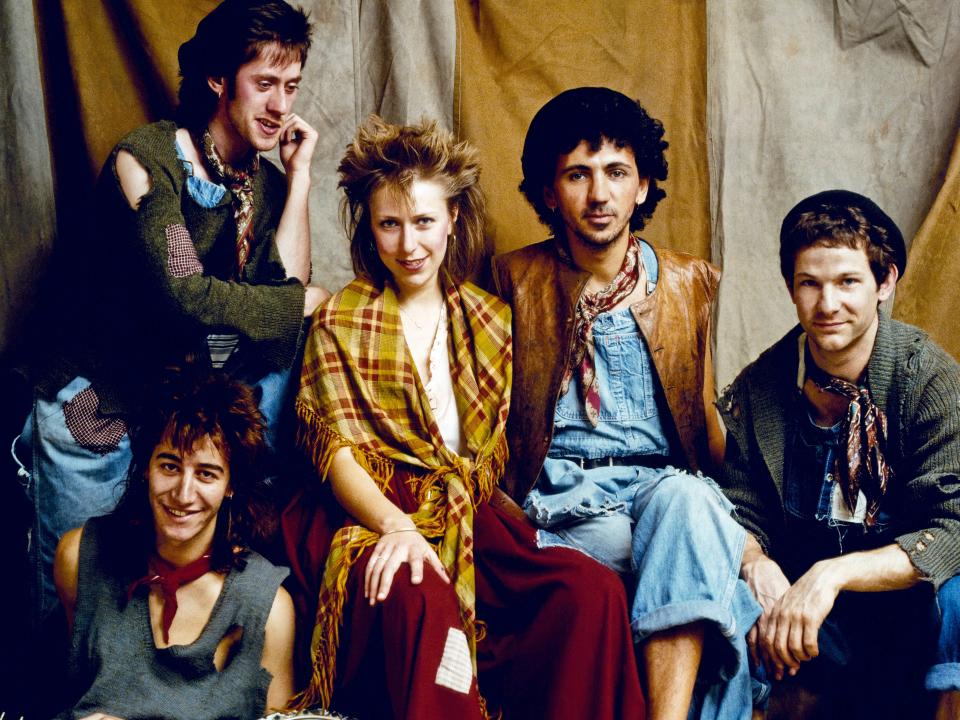
"Come On Eileen" was atop the Billboard Hot 100 for one week, and prevented Michael Jackson from having back-to-back No. 1 hits. It remains Dexys Midnight Runners' only song to chart in the US.
Recently, it was used in the teen comedy/drama "Perks of Being a Wallflower" and appears on the soundtrack.
"I Melt With You" by Modern English (1982)
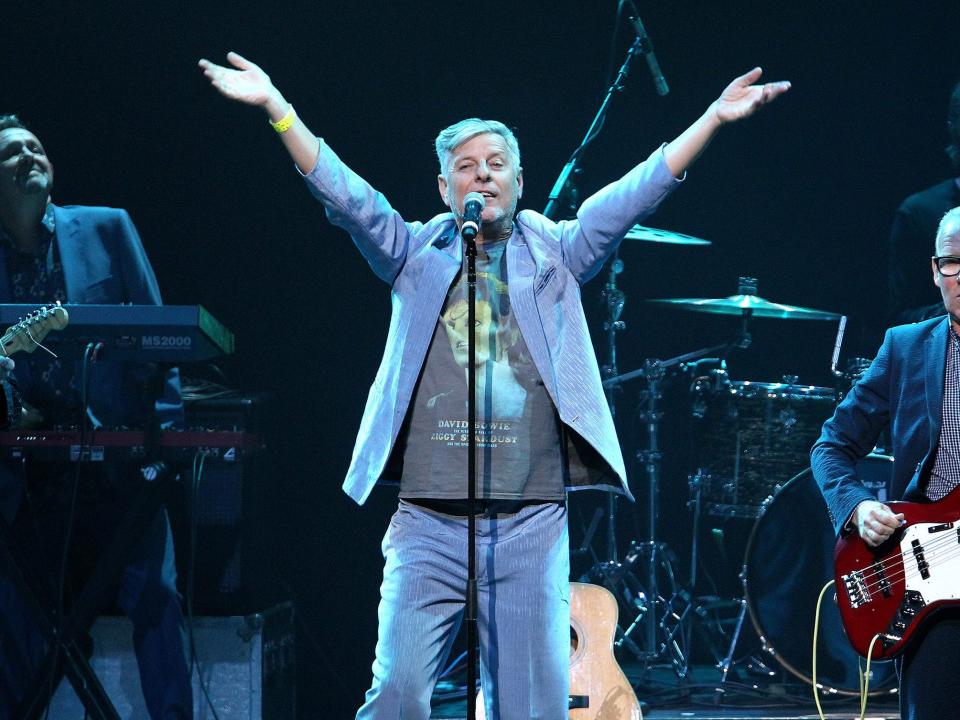
Consequence of Sound ranked "I Melt With You" the best one-hit wonder of all time.
"I Melt With You" wasn't a massive hit originally — it only reached No. 76 on the Billboard Hot 100.
But it's nearly impossible to find someone who can't at least hum along to the catchy song. This is because of its high usage in pop culture: It's been used in "Valley Girl," and covered by both Jason Mraz and Bowling For Soup for "50 First Dates" and "Sky High" respectively. It's also been featured in multiple commercials.
"Pass the Dutchie" by Musical Youth (1982)
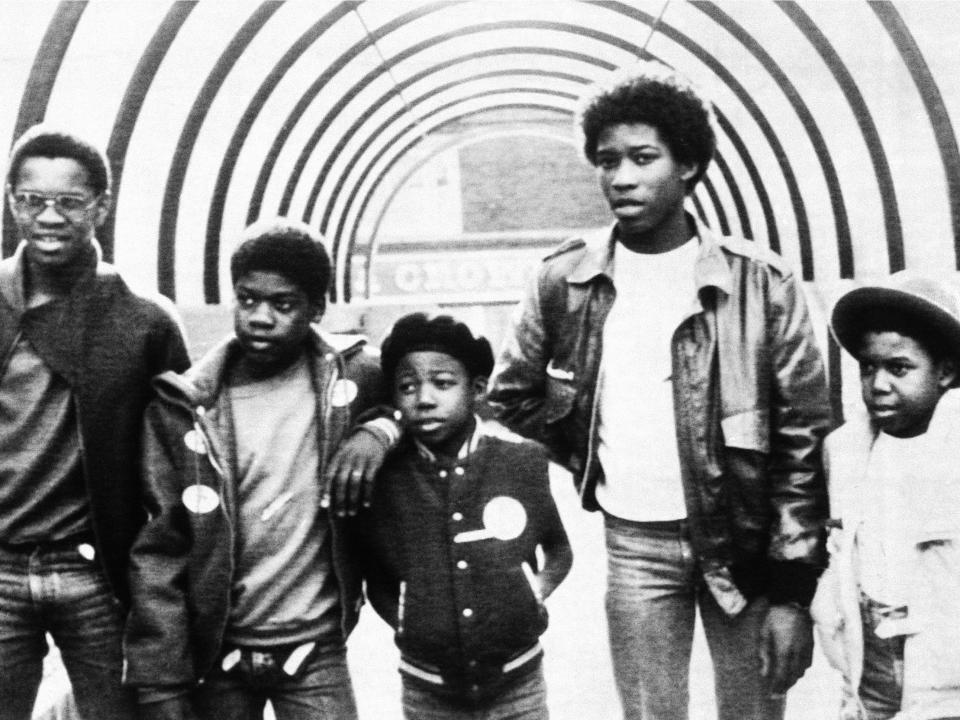
No, "Pass the Dutchie" isn't about smoking marijuana, though many people these days use the term "dutch" as slang for a joint — technically, in the context of the song, a dutchie is a cast-iron pot that's hung over an open fire, according to Urban Dictionary.
"Pass the Dutchie" was released in 1982 by the British-Jamaican reggae group Musical Youth. It was their first (and only) single to reach the top 10 on the Billboard Hot 100.
It should be said that Musical Youth had many hit singles in their home country, but across the pond, they'll forever be known for "Pass the Dutchie."
"Always Something There to Remind Me" by Naked Eyes (1983)
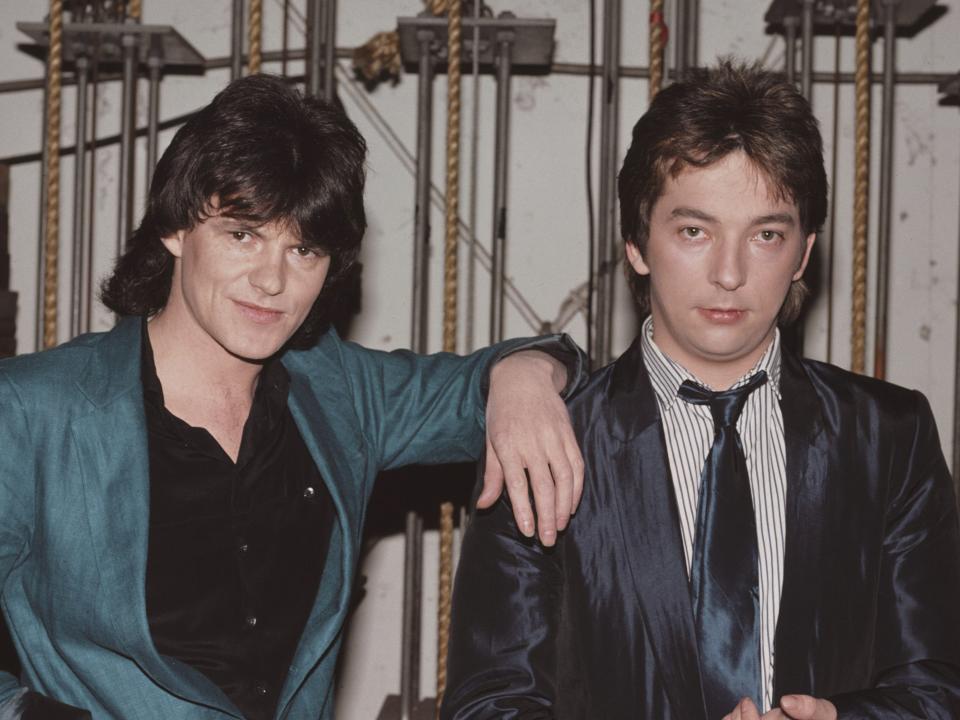
"Always Something There to Remind Me" was originally recorded in the '60s, and enjoyed mild success.
But the definitive version will always be Naked Eyes' synth-heavy cover, which eventually rose to No. 8 on the Billboard Hot 100. The song was the group's debut single, but also their peak. Their next big hit failed to crack the top 10.
Their version remains culturally relevant over 30 years after its release — it was featured in a trailer for "Arrested Development."
"99 Luftballons" by Nena (1983)

A rare non-Spanish foreign language hit, the German "99 Luftballons" topped the charts in 1983, and was even popular enough to warrant an English version, though this one didn't do as well in the US (it didn't reach the Billboard Hot 100).
Nena never had another song hit the top 100 in the US.
Listen to the English version here.
"Electric Avenue" by Eddy Grant (1983)
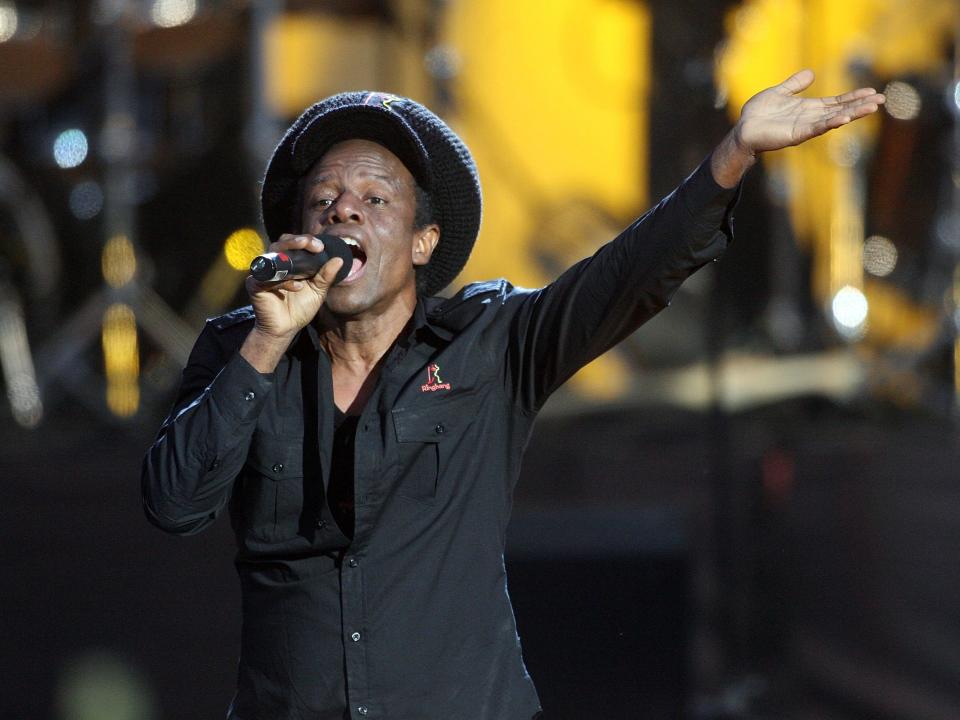
Grant has had three songs chart on the Billboard Hot 100 (two of which hit the perfectly respectable spots of 53 and 26).
But his almost-chart-topping smash hit "Electric Avenue" will remain his biggest song — and it's a true bop to boot. Just try listening to "Electric Avenue" without singing along.
"Take On Me" by A-ha (1984)
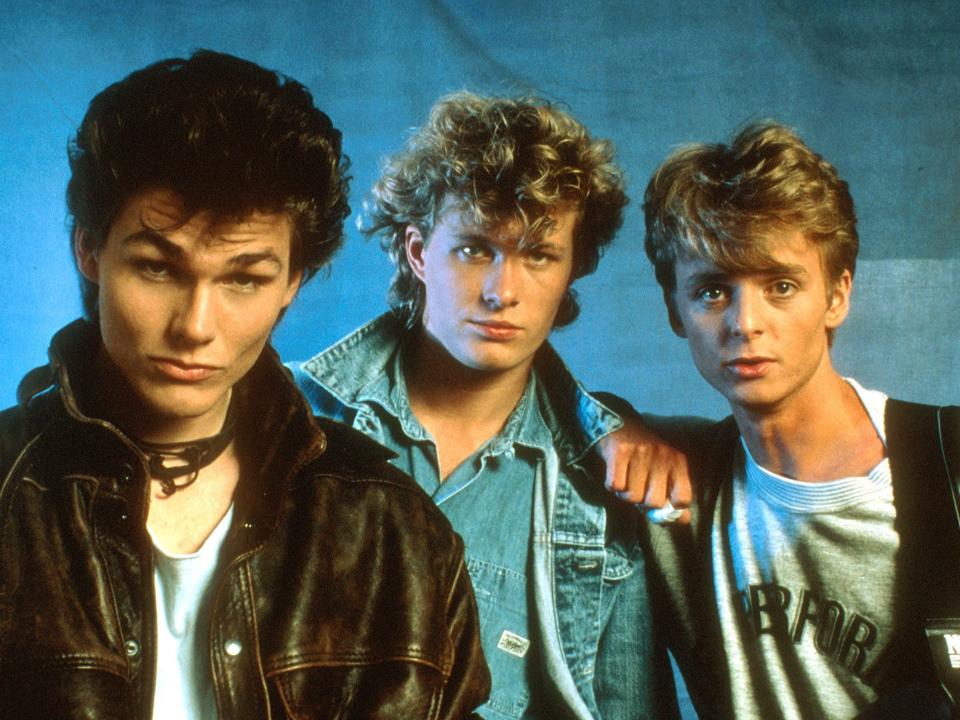
While A-ha is definitely not a one-hit-wonder in their native country of Norway, the band only had one big hit in the US: "Take On Me" topped the charts in 1985.
Much of the song's success can be attributed to its innovative music video, which combined live-action and animation, making it perfect for heavy rotation on MTV.
"Don't You (Forget About Me)" by Simple Minds (1985)
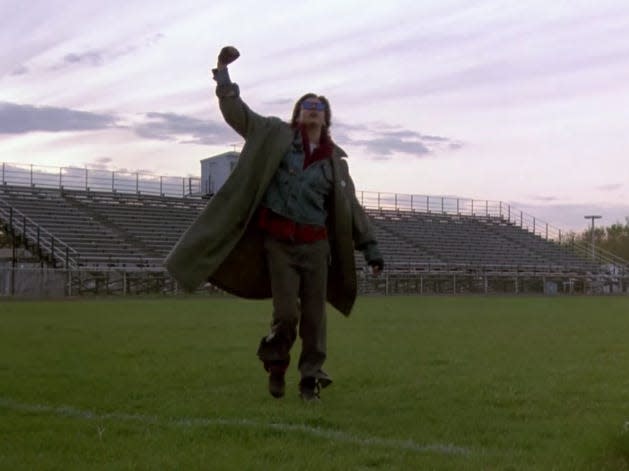
The triumphant ending of the movie "The Breakfast Club," when rebel loner Bender raises his fist in the air, would not have been the same without this Simple Minds classic playing in the background.
The song peaked at No. 1 on the Hot 100, and topped charts around the world.
Simple Minds capitalized on its success and actually scored another top-five single with "Alive and Kicking," but the band's enduring legacy will always be "Don't You (Forget About Me)."
"(I've Had) The Time of My Life" by Bill Medley & Jennifer Warnes (1987)
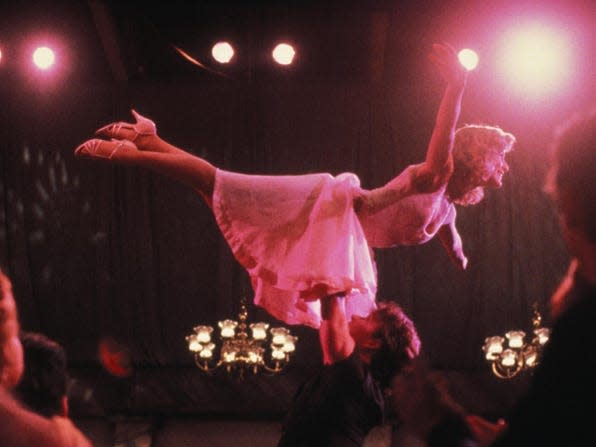
"(I've Had) The Time of My Life" and the movie "Dirty Dancing" are irrevocably linked — turn the song on at any event and prepare to see people attempt to recreate the movie's iconic dance move.
Billy Medley and Jennifer Warnes have both had mild success as solo artists, but nothing ever compared to their smash hit "(I've Had) The Time of My Life" — though Medley achieved more number ones as part of the musical duo The Righteous Brothers. The two never collaborated again.
"Don't Worry, Be Happy" by Bobby McFerrin (1988)
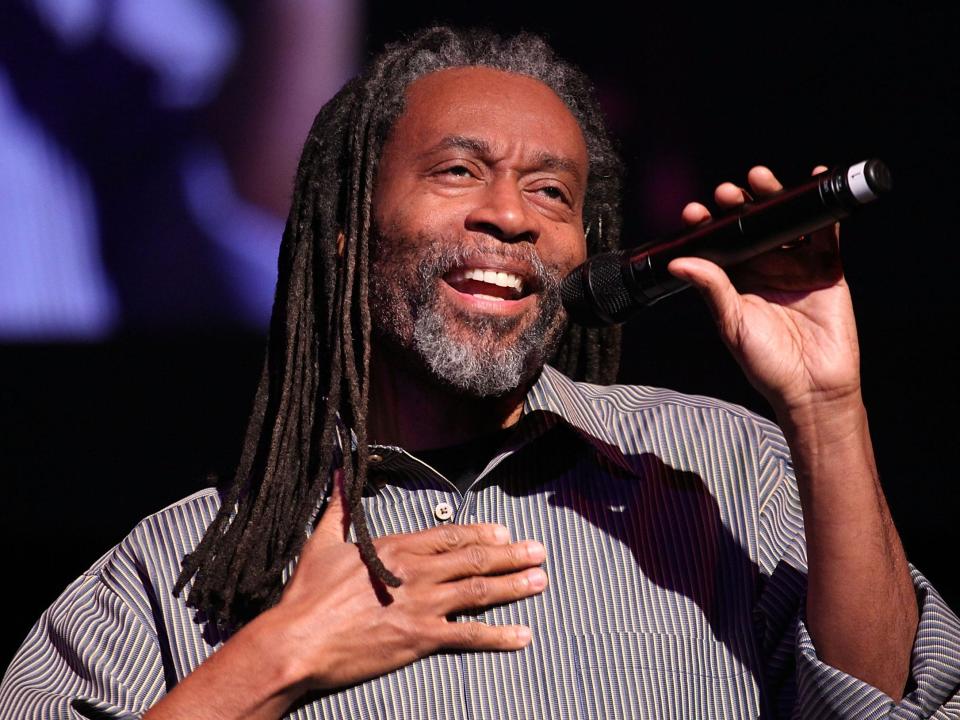
Commonly mistaken for a Bob Marley song, "Don't Worry, Be Happy" is actually performed by Bobby McFerrin. When the song hit the top spot on the Billboard Hot 100 in 1988, it became the first a capella song to reach No. 1.
McFerrin is mainly a jazz conductor, and "Don't Worry, Be Happy" remains his only crossover hit.
"I'm Gonna Be (500 Miles)" by The Proclaimers (1988)

"I'm Gonna Be (500 Miles)" reached No. 3 on the Billboard Hot 100, and is the only song by The Proclaimers to chart in the US to date.
It's a popular choice at sporting events, especially in their home country of Scotland.
The popular sitcom "How I Met Your Mother" also had a running gag throughout the show, in which the song was the official road trip music of two main characters, Marshall and Ted.
"There She Goes" by The La's (1988)
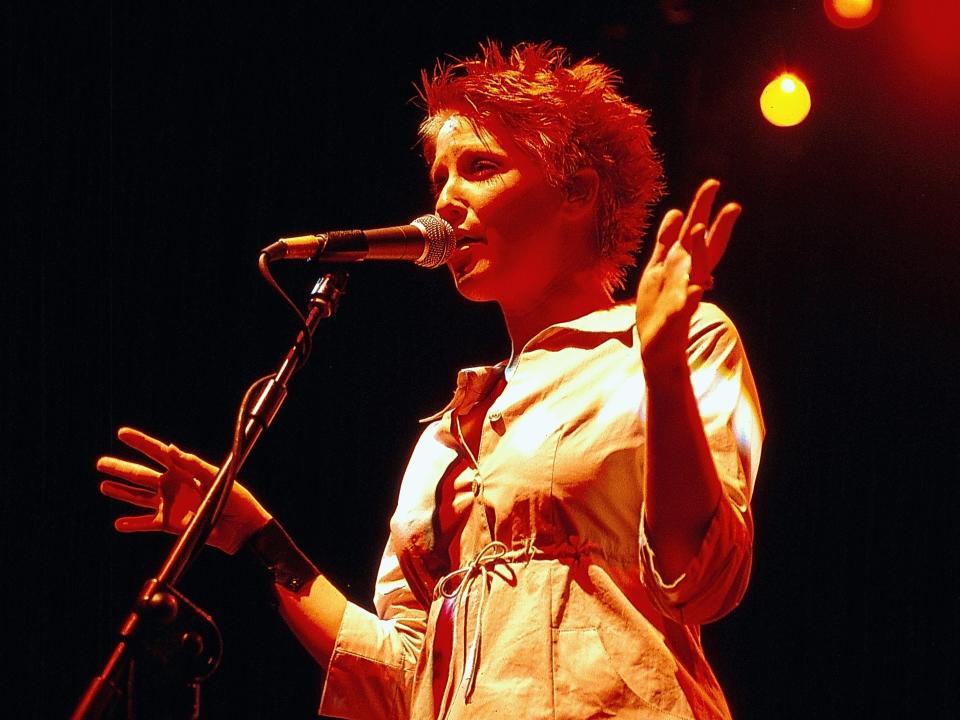
"There She Goes" is a controversial song, as there's some debate about whether it's about a girl or heroin, mostly because of the lyrics "Pulsing thru' my vein."
The La's found moderate success in their native UK, but not even their original version of the song made much of an impact on the charts. Many '90s kids remember the song mainly from "The Parent Trap."
Sixpence None the Richer released a cover version 11 years after the original in 1999, which hit No. 7 on the US Adult Top 40.
"Just a Friend" by Biz Markie (1989)
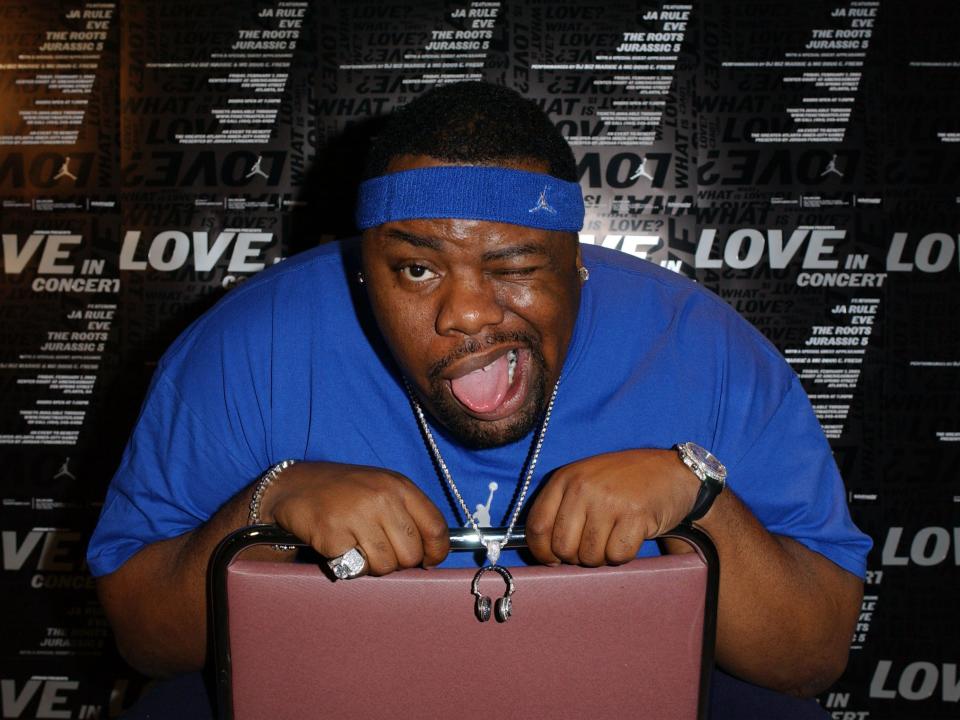
Even though Biz Markie was a certified one-hit wonder, he was definitely beloved before his death in 2021. VH1 ranked "Just A Friend" at 81 on its list of greatest hip-hop songs ever.
The song is certified Platinum, and also Markie's only song to ever grace the Hot 100.
"To Be With You" by Mr. Big (1991)
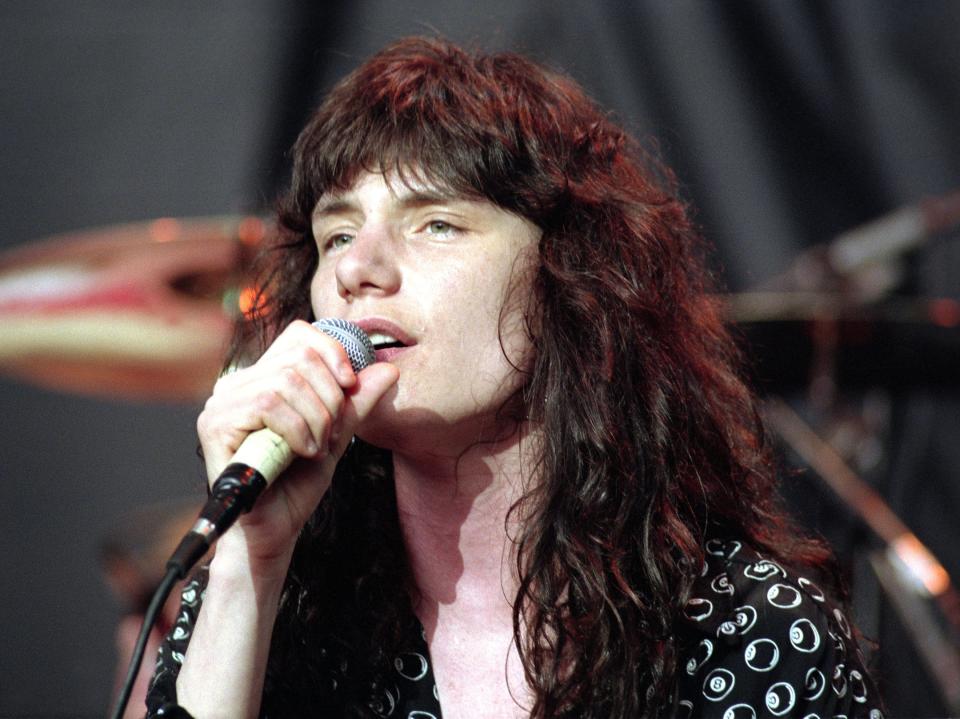
Mr. Big is a hard rock supergroup that is still churning out music to this day — they released an album in 2017.
But their one bona-fide hit is the acoustic ballad "To Be With You." The certified Gold song reached No. 1 on the Billboard Hot 100. The group never had another song that reached that same level of mainstream success.
"No Rain" by Blind Melon (1992)
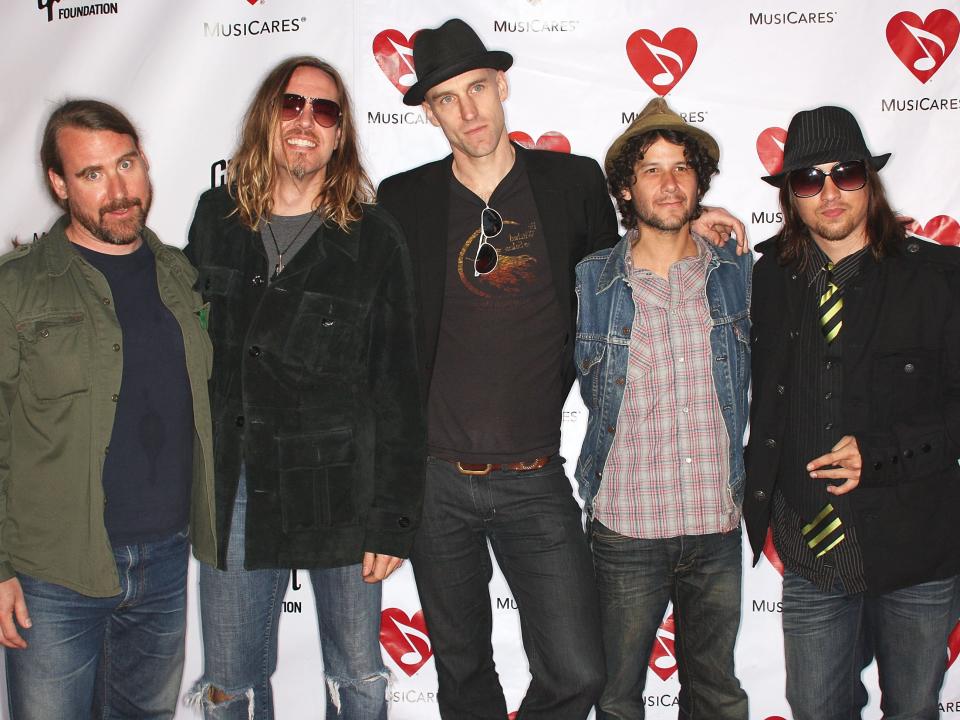
Part of "No Rain's" legacy is the "Bee Girl" featured in its music video. American actor Heather DeLoach is still best known for portraying a tap-dancing bee in the 1992 video, which spawned many a Halloween costume.
"No Rain" was the second single from the band's debut album, and their only song to make it on the Billboard Hot 100.
"Baby Got Back" by Sir Mix-a-Lot (1992)
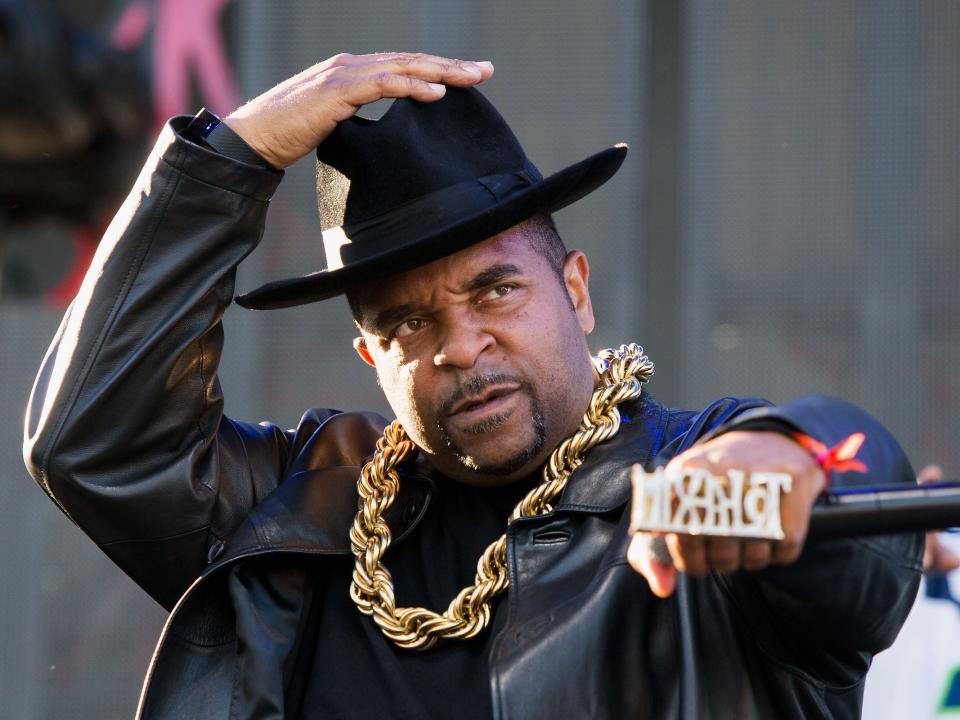
"Oh my God, Becky, look at her butt." With that one sentence, you already know you're in for a true banger. "Baby Got Back," an ode to women and their curves, has recently received new life from being sampled in Nicki Minaj's smash hit "Anaconda."
But "Baby Got Back" was huge in its own right. It spent five weeks at No. 1 on the Billboard Hot 100, a feat none of the rapper's other singles came close to reaching.
Even if you think you hate this song, give it one more try (when was the last time you listened to it in its entirety?) and just try not to smile.
"What's Up?" by 4 Non Blondes (1993)
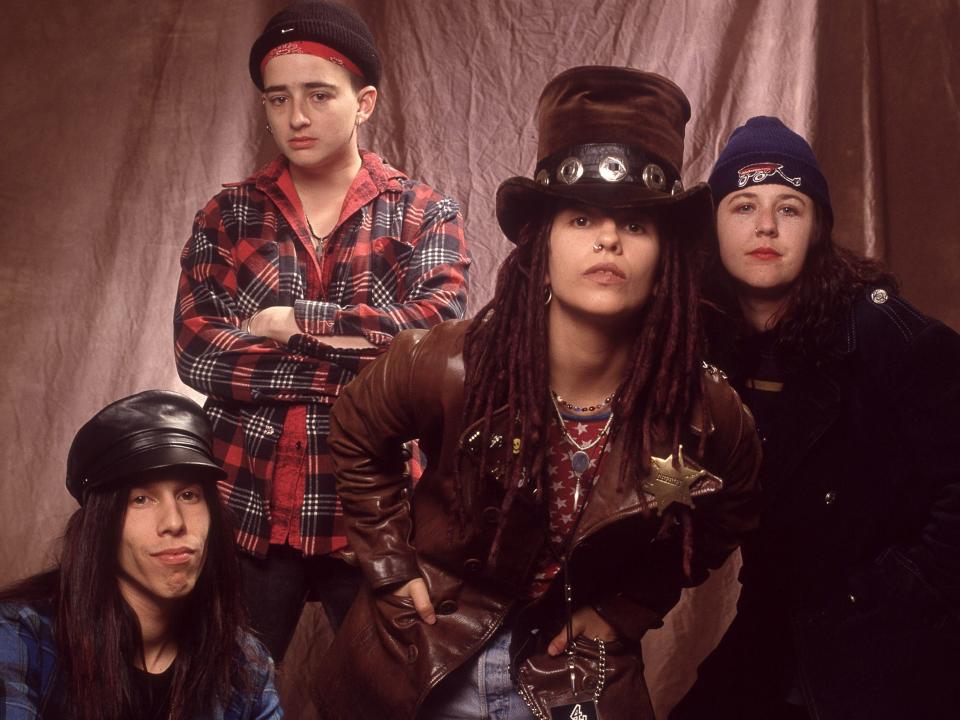
"What's Up?" doesn't actually feature the lyrics "what's up" anywhere in the song. It would have made much more sense to name the song "What's Going On," but there's a common internet urban legend that claims the band didn't want any confusion with the Marvin Gaye song of the same name.
Part of the song's charm is how genuinely fun it is to sing. That chorus will get any crowd screaming at the top of their lungs. Unfortunately, 4 Non Blondes was not long for this world, and broke up just a year after the song was released.
"What's Up?" reached the top of the charts in many countries and hit No. 14 in the US, making it their first and final song to crack the top 100.
"What Is Love" by Haddaway (1993)

Who among us doesn't do the "A Night at the Roxbury" head bob when we hear "What is love?/Baby don't hurt me/Don't hurt me/No more?"
But not many people know the artist behind this dance hit. "What Is Love" was recorded by Trinidadian-German artist Haddaway. It was his debut single and ended up becoming his signature song. His only other song to reach the Billboard Hot 100 peaked at number 41.
"Macarena" by Los del Río (1995)
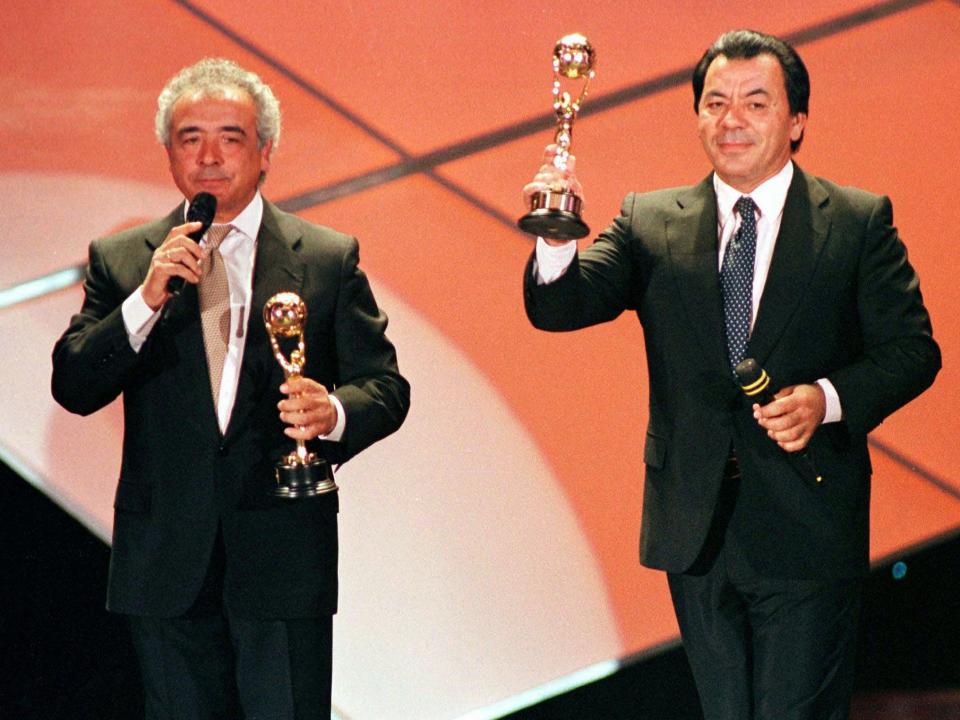
According to VH1, "Macarena" is the best one-hit wonder of all time — and it's hard to disagree. Los Del Río's original version of the song didn't make any waves, but once the Bayside Boys remix was released, the world was never the same.
"Macarena" is inescapable at weddings, sporting events, parties, and essentially any public event.
But who is Los Del Río? Many Americans would be hard-pressed to remember the duo behind this iconic song. Their only other song to reach the charts was "Macarena Christmas" in 1996, which reached No. 57 on the charts.
"I'll Be There For You" by The Rembrandts (1995)
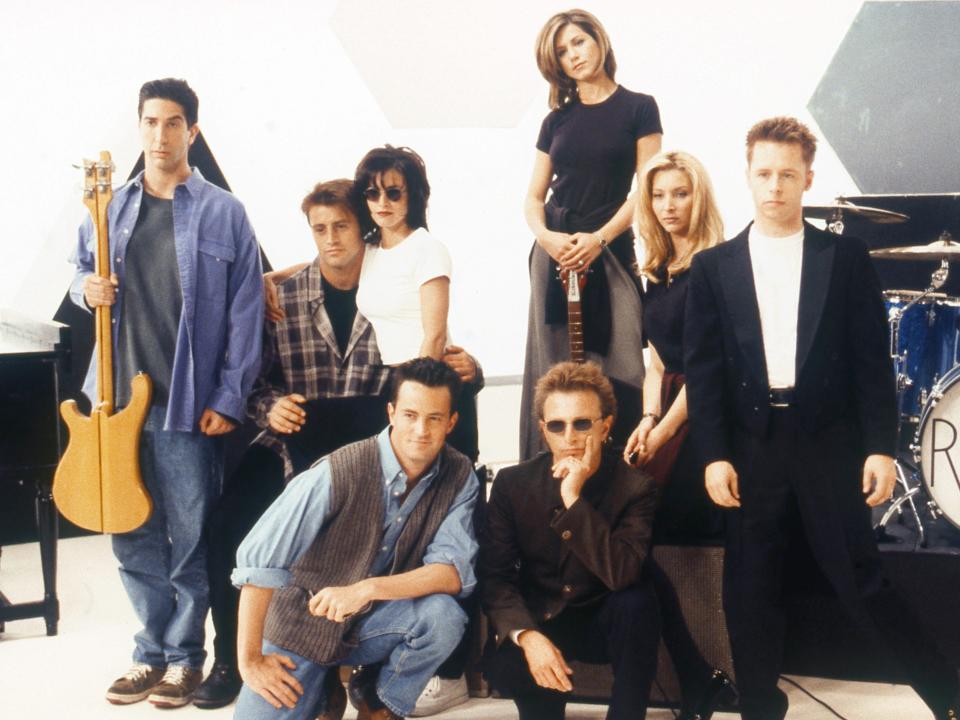
Whether you find yourself charmed by "I'll Be There For You" depends on whether you're a fan of "Friends" or not.
And since "Friends" is one of the most popular TV shows ever, it's a reasonable assumption. If you don't find yourself clapping along during the theme song — this song isn't for you.
The members of The Rembrandts have gone back and forth about their feelings for the tune. Danny Wilde told The Independent in 2004 that he believed that the song's mainstream success cost them many of their original fans, who thought they sold out.
The Rembrandts actually had a song chart higher than "I'll Be There For You," called "Just The Way It Is, Baby," but their most enduring contribution to pop culture will always be "I'll Be There For You."
"One Headlight" by The Wallflowers (1996)
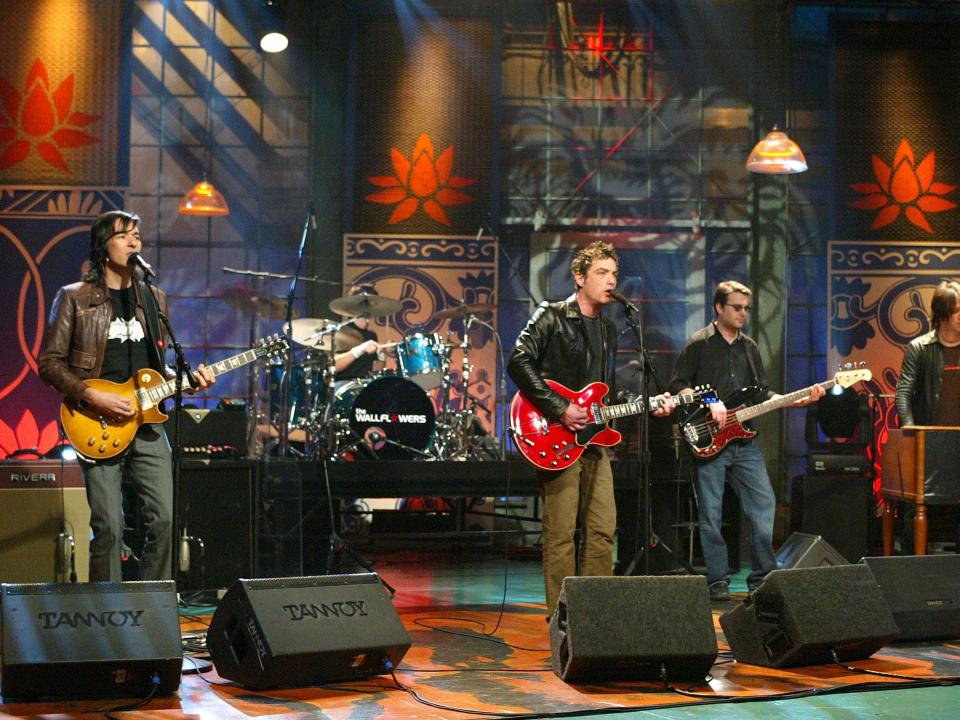
While The Wallflowers are a pretty successful alternative band, their biggest mainstream crossover is "One Headlight," which hit No. 2 on the Billboard Top 40.
It also won a Grammy for best rock performance by a duo or group in 1997.
The band is rocking out to this day, but hasn't appeared on the charts since 2000. "One Headlight" remains their only top 10 hit.
"Bitch" by Meredith Brooks (1997)
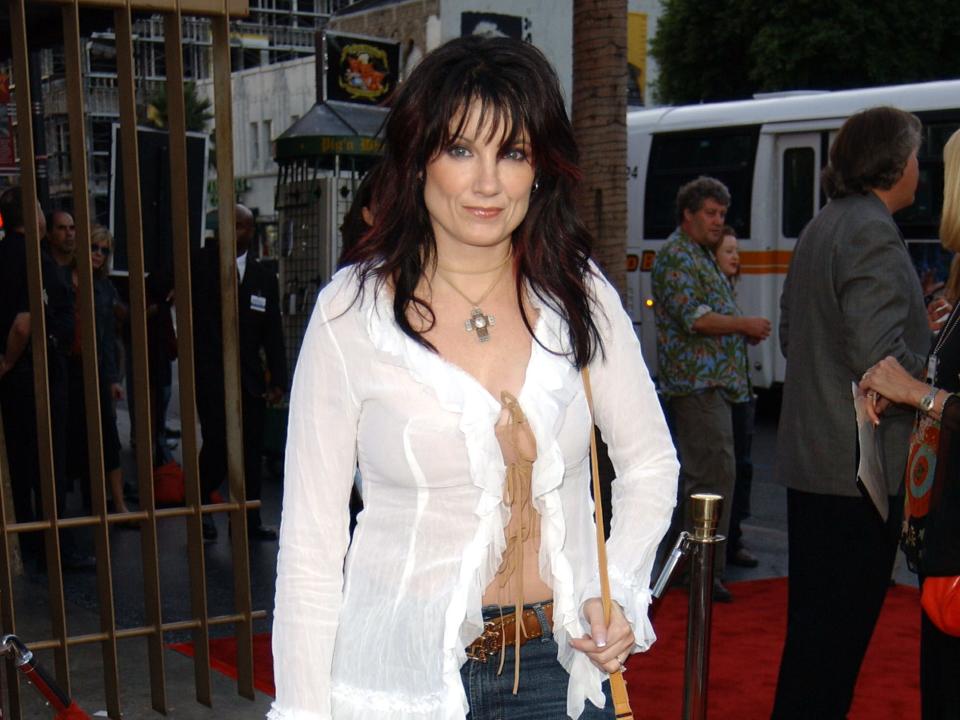
"Bitch," also known by its radio name "Nothing In Between," was nominated for two Grammys in 1997 (which, it turns out, was a great year for one-hit wonders).
Brooks never achieved the success of this song again, with none of her singles cracking the top 10 — though she did have one other song reach No. 46.
However, "Bitch" lives on — it was even featured in a season one episode of the sci-fi hit show "Orphan Black."
"Tubthumping" by Chumbawamba (1997)
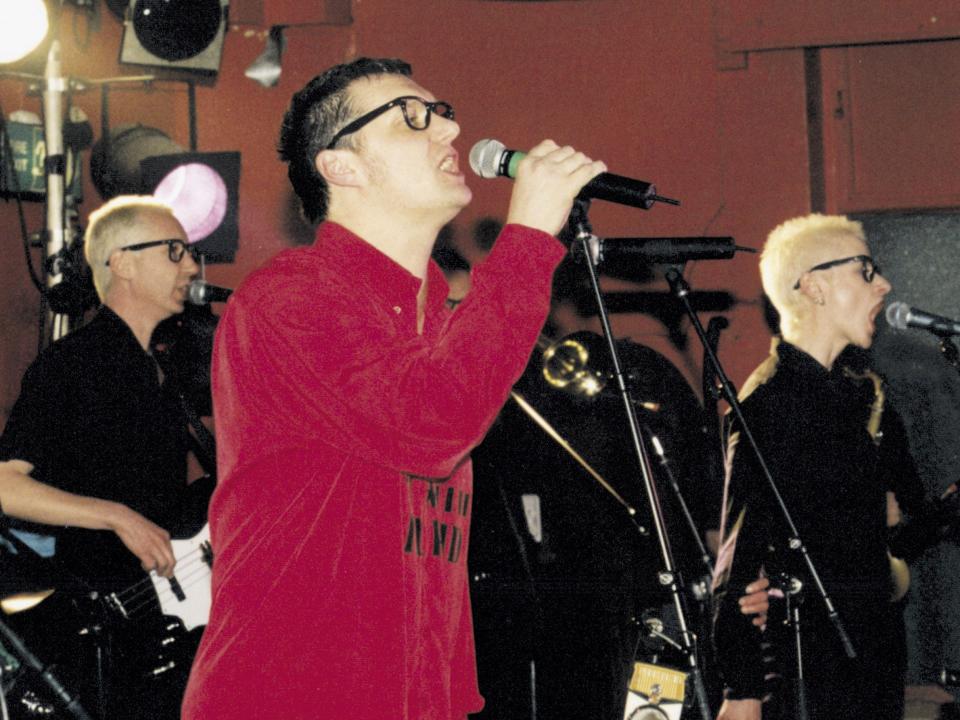
Think you don't know "Tubthumping?" You might know it by its colloquial name, "I Get Knocked Down."
A staple at sporting events, "Tubthumping" remains British band Chumbawamba's only mainstream hit.
"MMMBop" by Hanson (1997)
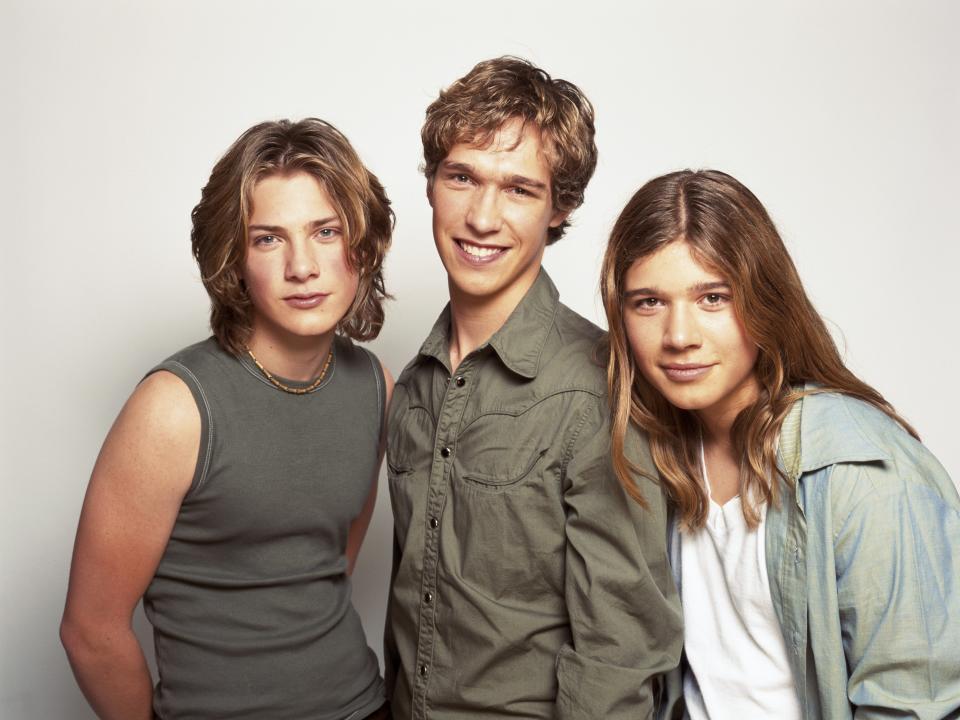
"MMMBop" is an earworm. All it takes is one listen to get it stuck in your head.
Even though the Hanson boys are still releasing music, nothing will ever top their "MMMBop" success.
They had one other single reach the top 10, also in 1997, but haven't had a hit single since — though they still have a dedicated fan base.
"Torn" by Natalie Imbruglia (1997)

Australian pop star Natalie Imbruglia's biggest hit to date isn't an original song — it's her cover of Ednaswap's 1993 single "Torn," though Imbruglia's version has become the better-known one.
"Torn" has received critical acclaim and was even chosen as the best pop song by Q Magazine. According to the Guardian, it was also the most-played song on UK radio in 1998.
The album "Torn" appears on "Left of the Middle," which was certified double Platinum in the US, mainly because of the success of "Torn."
However, Imbruglia's next album peaked at 35, and her three follow-ups have failed to chart. Her only other single to reach the Hot 100 was 2002's "Wrong Impression," which only reached 64.
"Torn" was exposed to a new generation when boy band sensation One Direction chose to perform the song during their time on "The X-Factor" and again at a Radio 1 Live Lounge performance in 2015.
"Save Tonight" by Eagle-Eye Cherry (1997)
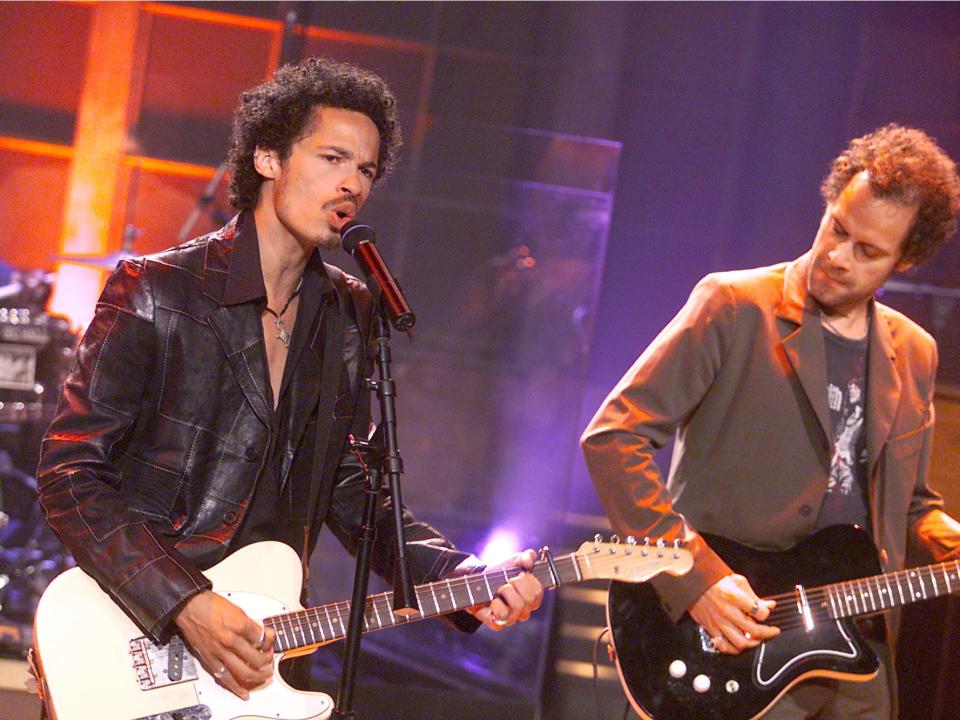
"Save Tonight" was Norwegian musician Eagle-Eye Cherry's big break in the US — or at least, it was supposed to be. He could never replicate the success of this soft-rock jam, which peaked at No. 5 on the Billboard Hot 100, and led to Eagle-Eye Cherry making the rounds on American late-night TV ... and not much else.
"Bitter Sweet Symphony" by The Verve (1997)
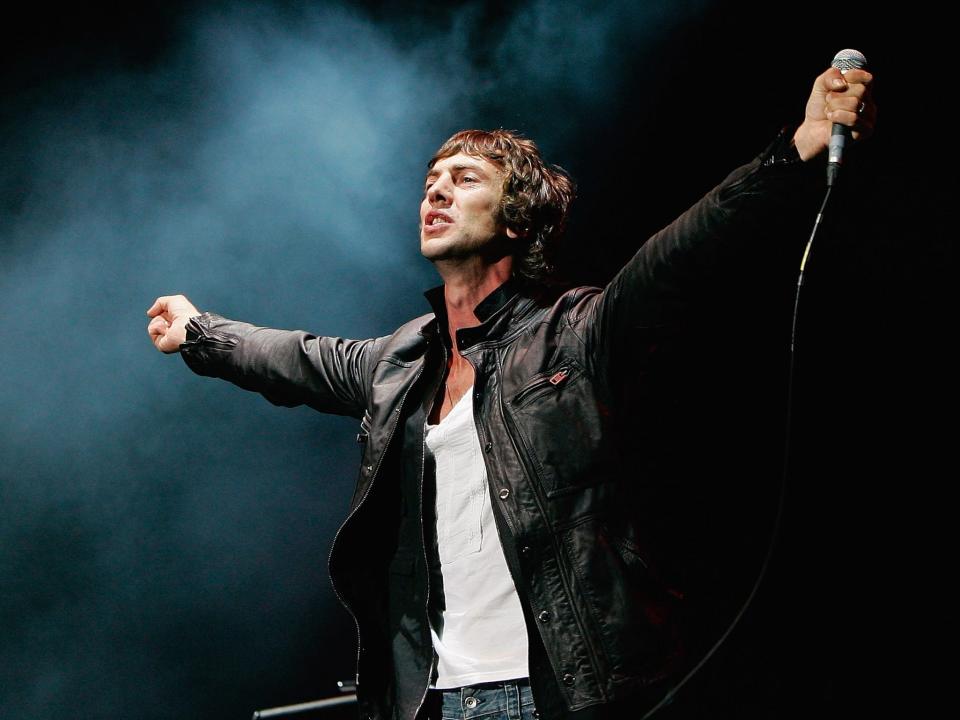
"Bitter Sweet Symphony" can potentially be credited for the break-up of The Verve.
The song spawned a bitter lawsuit that ended with The Verve giving up all their royalties from the song to The Rolling Stones, who claimed that the band had used more of their song "The Last Time" than they had agreed upon, according to Rolling Stone.
The song is widely loved, especially in The Verve's home country, the UK: BBC Radio 1 listeners even voted it the third-best track ever.
But even though the song defines an era, The Verve could never duplicate its success, especially in the US — it was their one and only song ever to reach the charts.
"You Get What You Give" by New Radicals (1998)
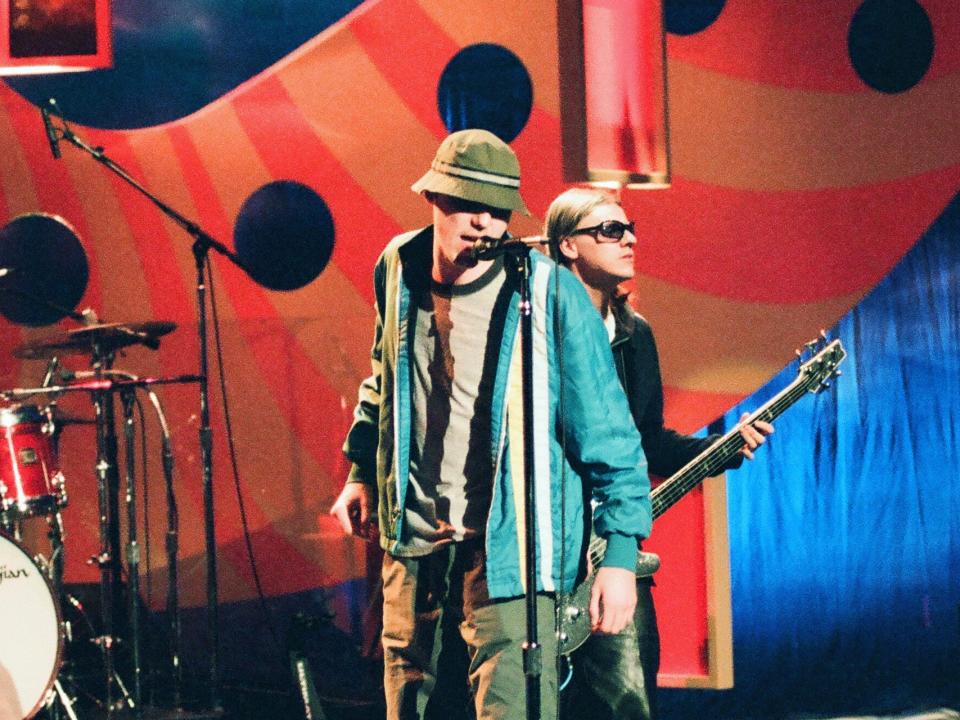
"You Get What You Give" was New Radicals' first single, and ended up being one of only two — the group broke up shortly after the release of their only album "Maybe You've Been Brainwashed Too" in 1998.
While they broke up in 1999, the song is continually used in pop culture, from"Glee" and "Community" to movies like "A Walk to Remember" (which also featured a cover of their other song, "Someday We'll Know" by star Mandy Moore).
Who knows if New Radicals would have remained a one-hit wonder — they broke up before they could release more music. As it stands, "You Get What You Give" lives on as their only hit.
"Closing Time" by Semisonic (1998)
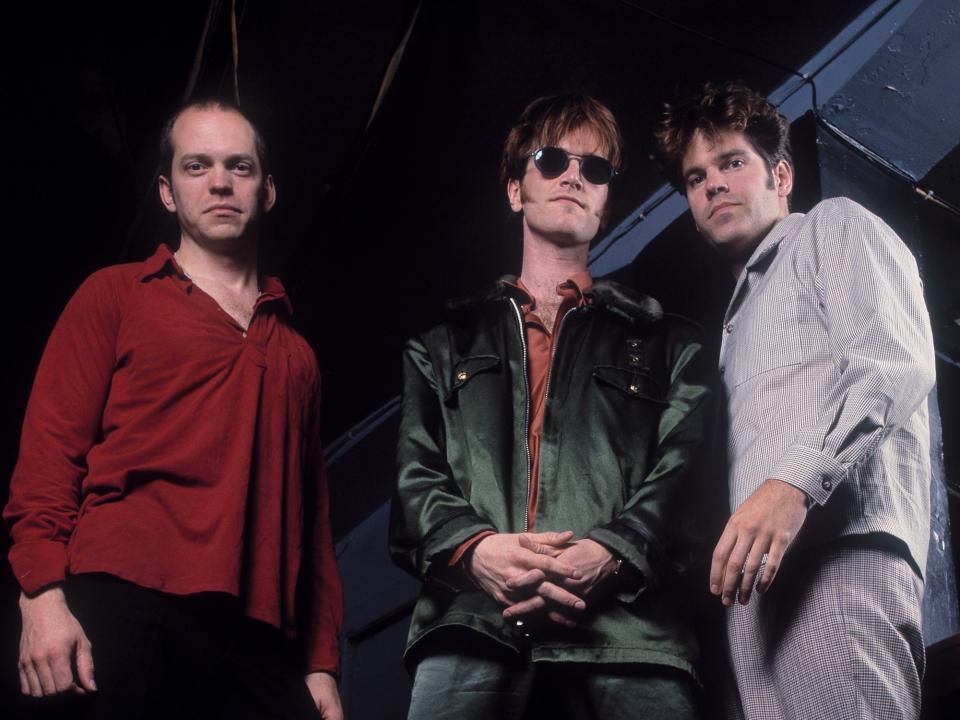
If a running joke throughout an entire movie is about whether a song was sung by its actual band or Third Eye Blind, it's a one-hit wonder.
At the climax of "Friends With Benefits," Justin Timberlake's character finally admits he was wrong: "Closing Time" is, in fact, sung by Semisonic, not Third Eye Blind.
The perfect last-call anthem remains Semisonic's only hit.
"Steal My Sunshine" by Len (1999)
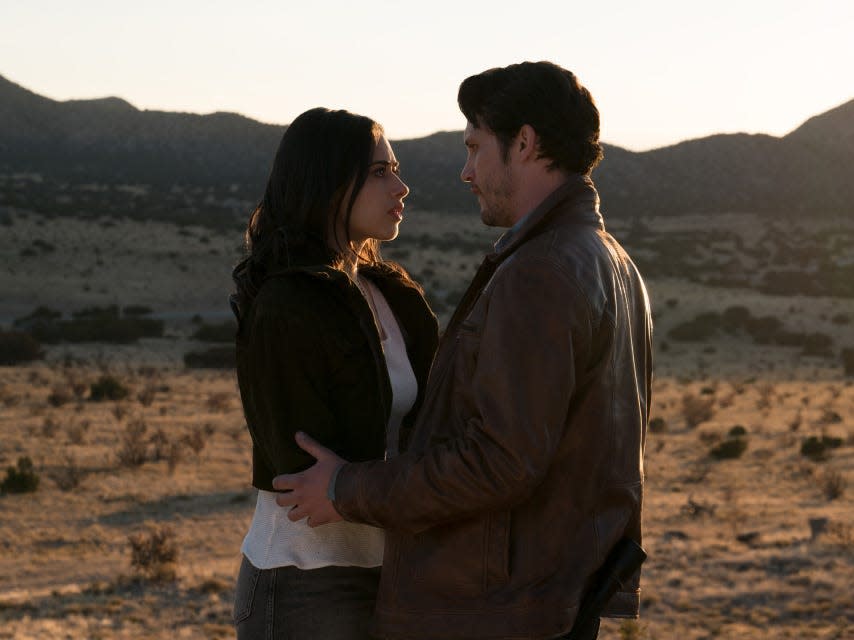
"Steal My Sunshine" is the perfect summer anthem — Rolling Stone ranked it No. 33 on its list of the best summer songs of all time.
It reached the top 10 in the US Hot 100, and was in the top 100 songs of 1999.
But Len's following six singles failed to make an impact, leaving the band trapped in an eternal summer. The song has also been used in plenty of TV shows over the years, including "Roswell, New Mexico," "Love Island," "Private Practice," "PEN15," and more.
"Mambo No. 5" by Lou Bega (1999)

This song was originally recorded in 1949 by Cuban musician Dámaso Pérez Prado but didn't enter the mainstream until Lou Bega's cover in 1999.
Even though it has been ranked as one of the most annoying songs by Mental Floss, we'd have to disagree. Try listening to it without smiling and dancing in your seat — impossible.
The song hit No. 1 in nine countries and reached No. 3 on the US Billboard Hot 100. It became so popular that Disney created its own version, replacing the women's names with Disney characters.
Bega had one other song on the Hot 100, "Tricky, Tricky" in 1999, which hit No. 74, but hasn't had another mainstream hit since.
"She's So High" by Tal Bachman (1999)
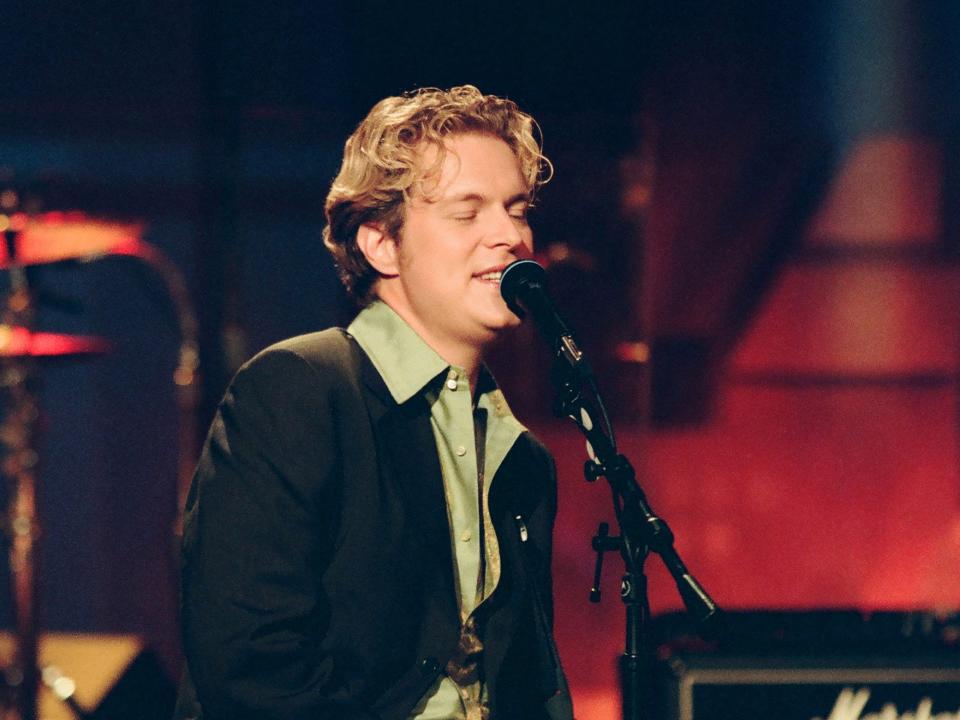
Most people can relate to being interested in someone they think is way out of their league, which might be why "She's So High" is still remembered so fondly. It peaked at No. 1 on the Adult Top 40 and at 14 on the Billboard Hot 100.
The song has lived on in movie soundtracks (see: "Loser" and "She's Out of My League"), but Tal Bachman has faded from the spotlight.
His last single, "Na Na Na," was released in 2019 and failed to chart. Bachman did perform his hit song with Taylor Swift in 2011, ensuring that a new generation will enjoy "She's So High."
"Absolutely (Story of a Girl)" by Nine Days (2000)
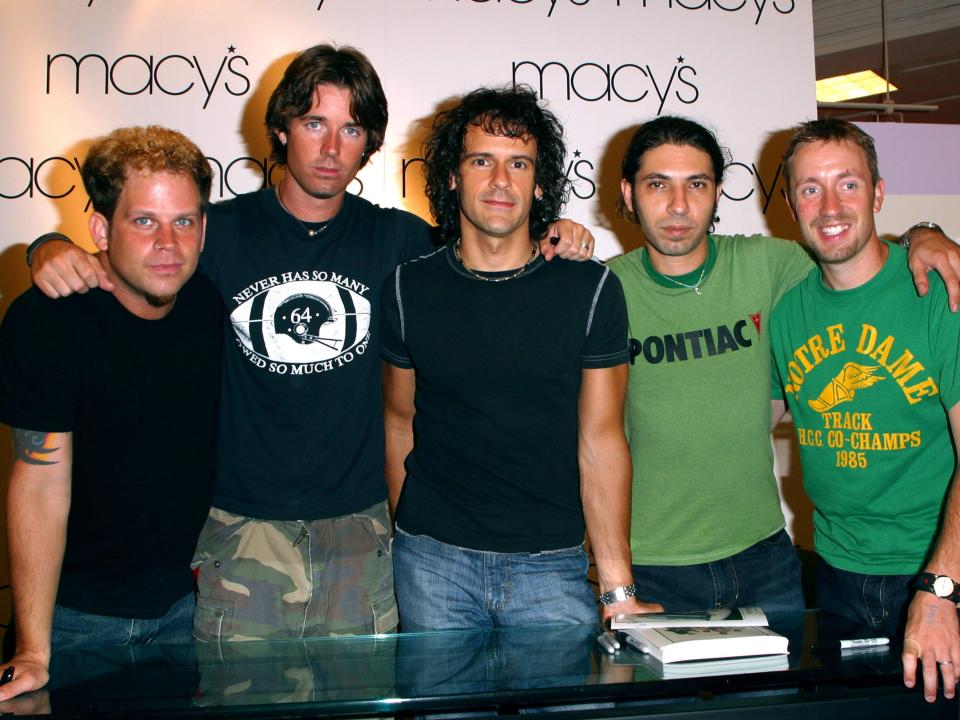
"This is the story of a girl, who cried a river and drowned the whole world." Any self-respecting pop-punk fan's ears will perk up at the opening lyrics to "Absolutely (Story of a Girl)."
The song appeared on the band's fourth album, but their first to be on a mainstream label. It reached No. 6 on the Hot 100 and No. 1 on Mainstream Top 40.
Nine Days are still together, but none of their albums have come anywhere near the success of "The Madding Crowd" (none have charted), and the guys in the band have all moved on.
Lead singer Hampson still moonlights as a musician, but by day he's a perfectly respectable English teacher at a Long Island high school, according to Impose Magazine.
"What Would You Do?" by City High (2001)
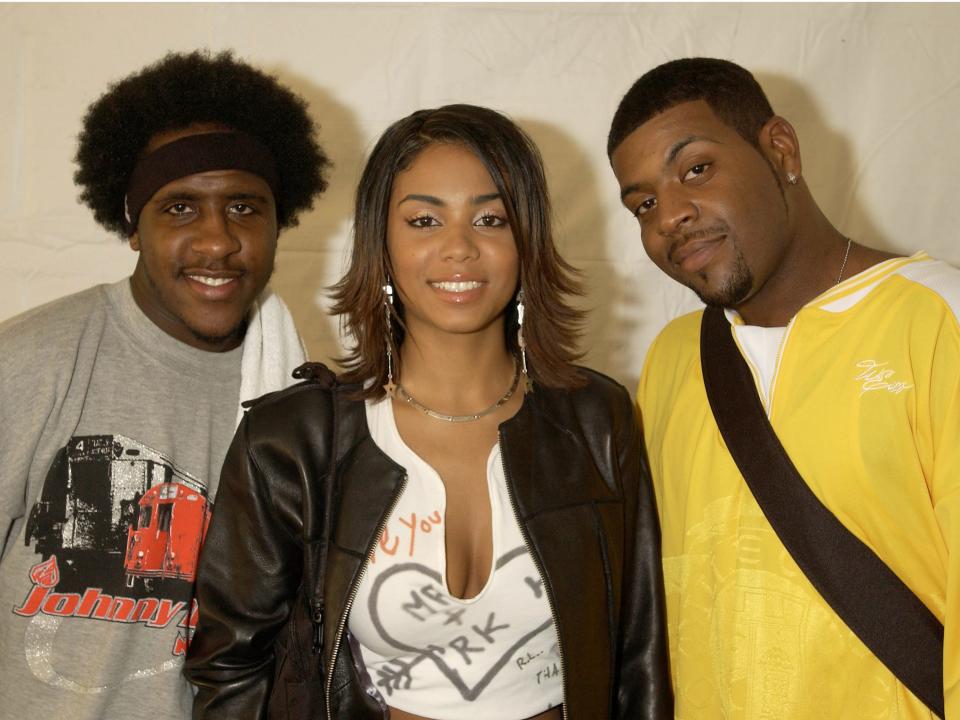
"What Would You Do?" deals with some heavy subject matter (mothers living in poverty who turn to prostitution to provide for their kids), which is why its commercial success was a bit of a surprise. The song topped the US Rap chart and reached No. 8 on the Hot 100.
City High only released one album in 2001, and their other two singles, besides "What Would You Do?," failed to make the same impact. Their follow-up, "Caramel," reached No. 18, and their last single "City High Anthem" failed to chart.
"Because I Got High" by Afroman (2001)
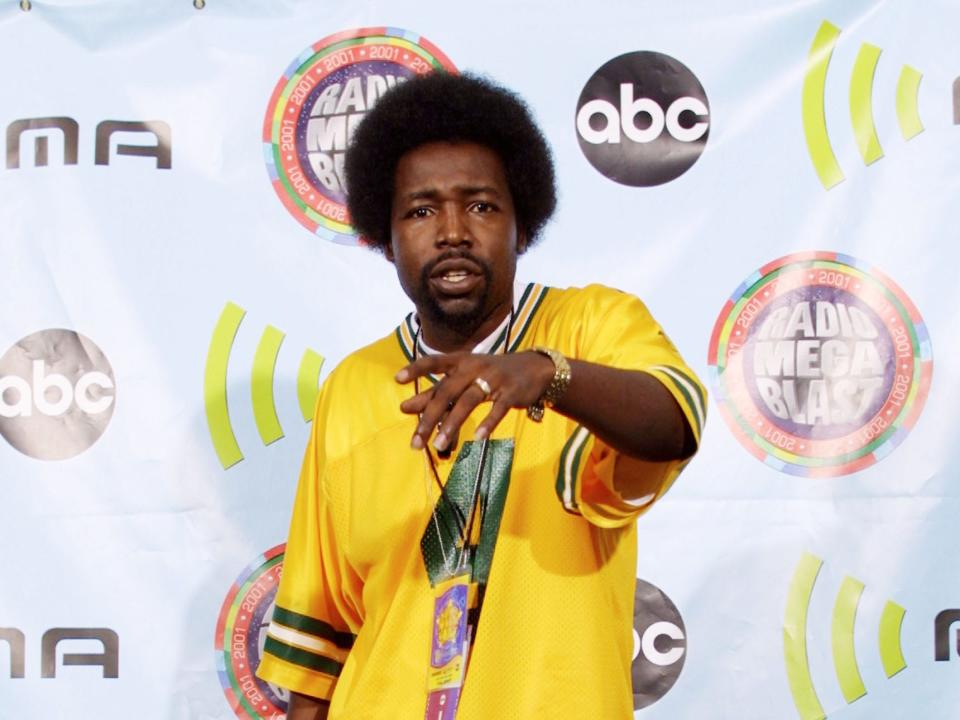
Afroman was nominated for a Grammy for "Because I Got High," a song all about blowing off tasks, work, child support, and basically everything in order to smoke weed.
The catchy song was Afroman's mainstream breakthrough, but he hasn't reached that same level of success since.
"California" by Phantom Planet (2002)
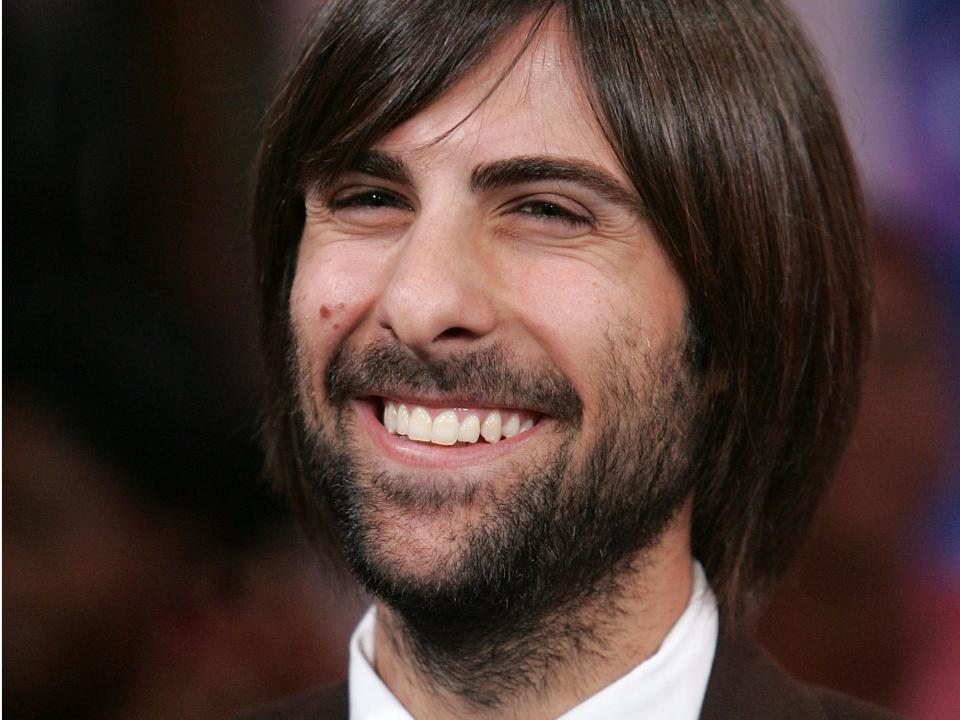
Just listening to the first few piano notes will take anyone back to the days of "The OC."
While it was never a commercial hit, millions of people heard it every week for four seasons of the hit show, for which it was the theme song.
Phantom Planet never achieved mainstream success in the US, and officially disbanded in 2008 — but they reunited in 2019 and released an album, "Devastator," in 2020.
"I Believe in a Thing Called Love" by The Darkness (2003)

"I Believe in a Thing Called Love" was supposed to help British band The Darkness break into the US market, and was believed to signal the return of glam rock. Neither happened.
"I Believe in a Thing Called Love" was very successful in the UK, and mildly successful in the US (where it reached No. 9 on the Billboard Alternative chart), but it has endured as an emblem of the 2000s.
It has been heavily covered by different artists, and used in many different forms of media, ranging from a commercial starring Taylor Swift to appearing on the "Bridget Jones: The Edge of Reason" soundtrack.
"Stacy's Mom" by Fountains of Wayne (2003)
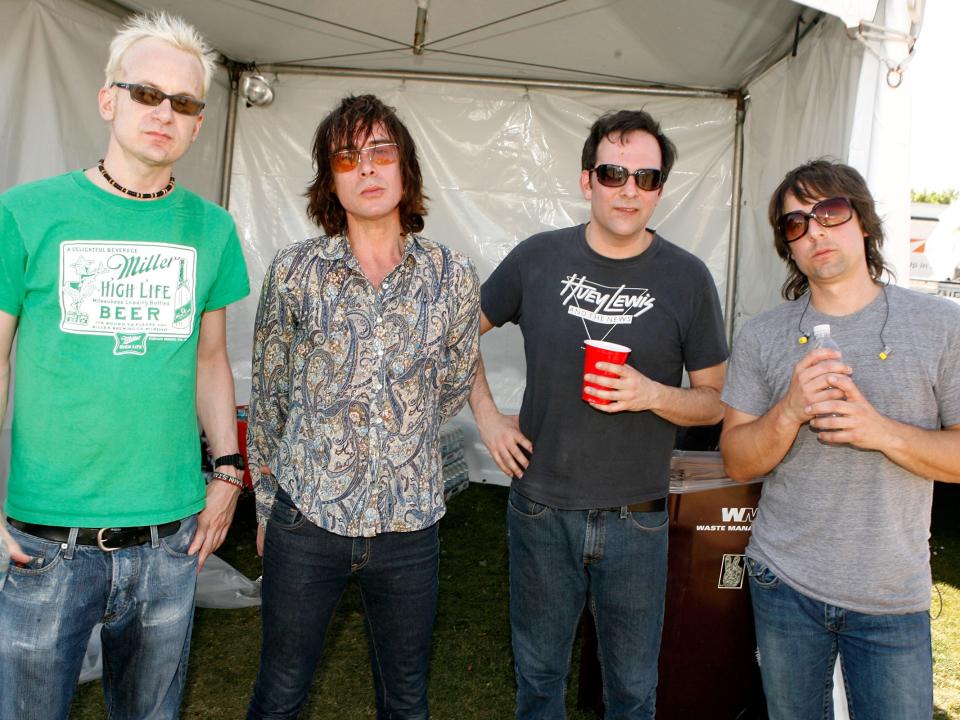
If a party ever needs to be livened up, queue up "Stacy's Mom." Even though it might be a bit juvenile, "Stacy's Mom" is a tried-and-true crowd-pleaser.
But the Grammy-nominated song is Fountains of Wayne's only song to ever chart — and even "Stacy's Mom" didn't do that well commercially. It peaked at No. 21, though it was one of the first songs to ever reach No. 1 on iTunes.
And in a true test of "one-hit wonder" status, many people don't even realize that Fountains of Wayne is behind this ode to hot moms — it's commonly mistaken for a Bowling for Soup song.
Fountains of Wayne had a cultural bump over the last few years for a sad reason, as one of its members, Adam Schlesinger, died in 2020.
"Bad Day" by Daniel Powter (2005)

"Bad Day" was ubiquitous for a good chunk of the 2000s — it was used as the farewell song on the fifth season of "American Idol." It was also certified triple Platinum by RIAA (Recording Industry Association of America).
In fact, according to one BBC reporter, "turning off the radio isn't enough to escape the tune. It can be heard everywhere from in shops, on mobiles, and especially on TV."
But now that we're somewhat removed from the peak of "Bad Day," it's hard to hear the song and not feel compelled to wave a lighter in the air, or at least sing along.
Powter hasn't come anywhere near this level of success again, with no other songs appearing on the Billboard Hot 100.
"Just the Girl" by The Click Five (2005)
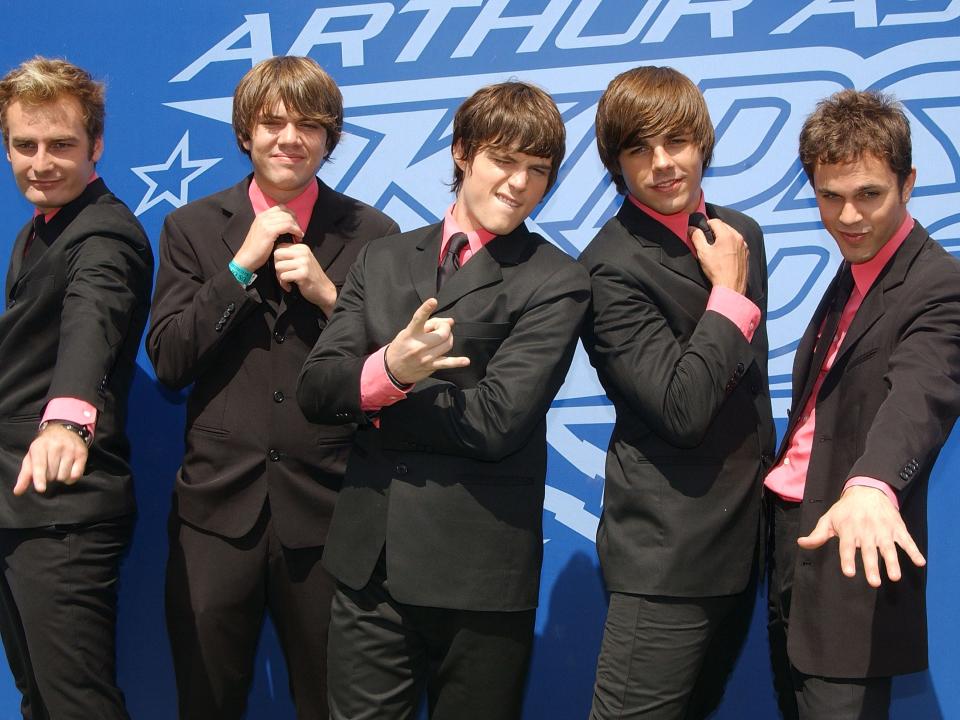
The Click Five were unfortunately too late for the boy band craze of the '90s and early aughts, and too late for their Renaissance with bands like One Direction, PrettyMuch, and Why Don't We.
However, "Just the Girl" is a classic for anyone who grew up in the 2000s, mainly from its appearance on the soundtrack of teen comedy "John Tucker Must Die." The song hit No. 1 on the Hot Digital Songs chart, and No. 11 on the Billboard Hot 100.
The group eventually disbanded in 2013, three years after their last album was released.
"Cupid Shuffle" by Cupid (2007)
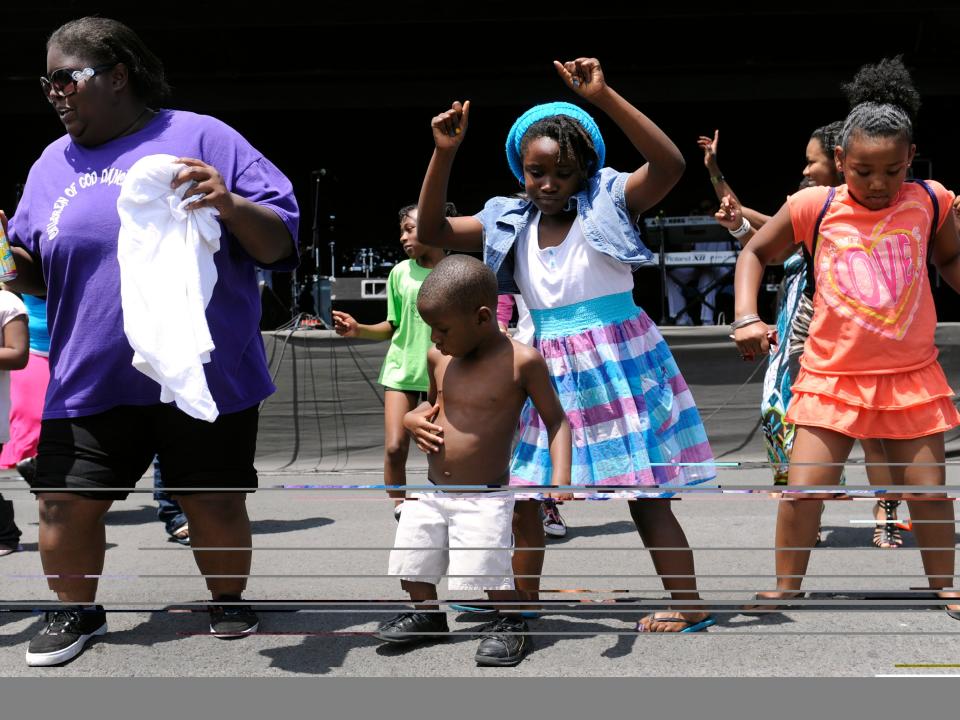
Cupid has released multiple albums but has only had real success with "Cupid Shuffle," a song that reached 66 on the Billboard Hot 100, and has become an extremely popular line dance, rivaling the Cotton-Eye Joe or the Electric Slide — except "Cupid Shuffle" is actually a good song.
Cupid has a truly spectacular vocal range, making the song enjoyable to listen to. Plus, it's a really simple dance — even police horses can get in on the fun.
Cupid even auditioned for "The Voice," to try to re-energize his career, but unfortunately, none of the judges turned their chairs around, eliminating him from the competition.
"Somebody That I Used to Know" by Gotye feat. Kimbra (2011)
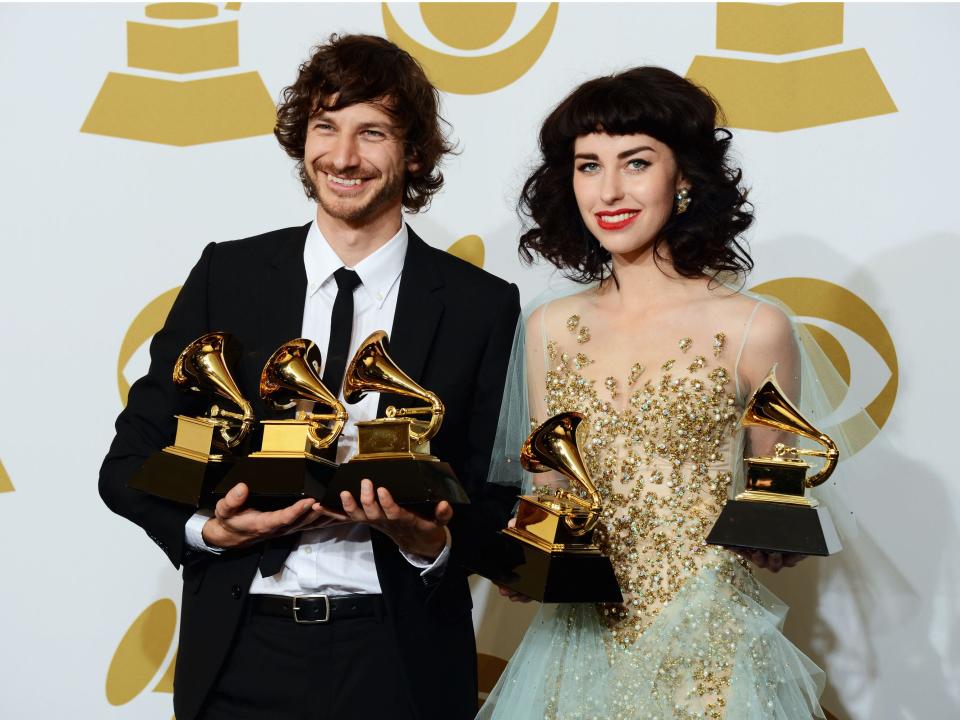
"Somebody That I Used to Know" was a smash hit in every sense of the word. Gotye and Kimbra won multiple Grammys for the song and stayed at the top of the charts for eight full weeks.
But Gotye hasn't released a follow-up to his 2011 album "Making Mirrors," which itself didn't make a huge splash in the US besides "Somebody That I Used to Know."
Kimbra is still making music, but in terms of album sales she also hasn't come anywhere close to that level of success. Her most recent album, which was released in January 2023, did not chart in her home country of New Zealand or the US.
In fact, Gotye released his first single in 11 years in 2024 — but it was just a remix of this song, called "Somebody (2024)." It didn't reach the Hot 100.
Read the original article on Business Insider


